#the one man i trust to provide cinema at it again i love winning
Photo

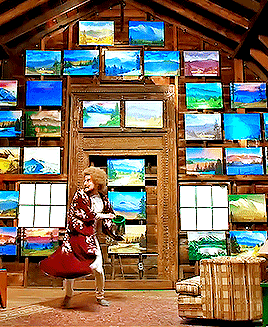




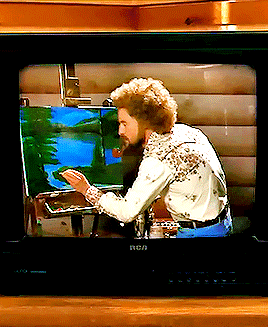

OWEN WILSON as CARL NARGLE in Paint (2023)
#owen wilson#carl nargle#paint#GIVE ME A MINUTE HEAR ME OUT -#like i never lost the faith he was pulling this off but it's actually UNREAL how beautiful he looks??? somehow softer than ever 😭😭#the one man i trust to provide cinema at it again i love winning#movieedit#owenwilsonedit#dianagifs
172 notes
·
View notes
Photo
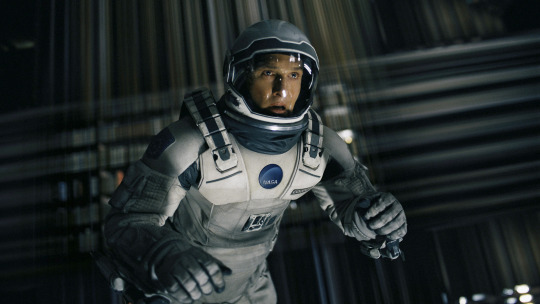
In Focus: Interstellar.
Inspired by Christopher Nolan’s Interstellar placing high across three notable Letterboxd metrics, Dominic Corry reflects on how the film successfully hung its messaging around the concept of love—and what pandemic responses worldwide could learn from its wholehearted embrace of empathetic science.
“Love isn’t something we invented. It’s observable, it’s powerful. It has to mean something.” —Dr. Amelia Brand (Anne Hathaway)
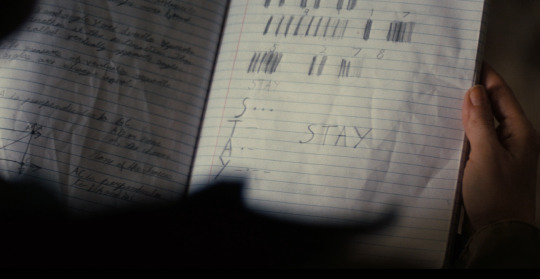
This story contains spoilers for ‘Interstellar’ (2014).
Although it is insultingly reductionist to both filmmakers, there are many reasons Christopher Nolan is often described as a modern-day Stanley Kubrick. The one most people usually settle on is the notion that both men supposedly make exacting, ambitious films that lack emotion.
It is an incorrect assessment of either director, but it’s beyond amazing that anyone could still accuse Nolan of such a thing after he delivered what is unquestionably his masterwork, the emotional rollercoaster that is 2014’s Interstellar.
In the epic sci-fi adventure drama, Nolan managed to pull off something that many filmmakers have attempted and few have achieved. He told a story of boundless sci-fi scope, and had it be all about love in the end. It sounds cheesy to even write it down, but Nolan did it.
That Interstellar is such an overtly cutting-edge genre film that chooses to center itself so brazenly and unapologetically around love, is frankly awesome.
Love informs Interstellar both metaphorically and literally: the expansive scope of the film effectively represents love’s infinite potential, and love itself ends up being the tangible thread that allows far-flung astronaut Cooper (Matthew McConaughey) to communicate with his Earth-bound daughter Murph (played as an adult by Jessica Chastain) from the tesseract (a three-dimensional rendering of a five-dimensional space) after Cooper enters the black hole towards the end of the film.
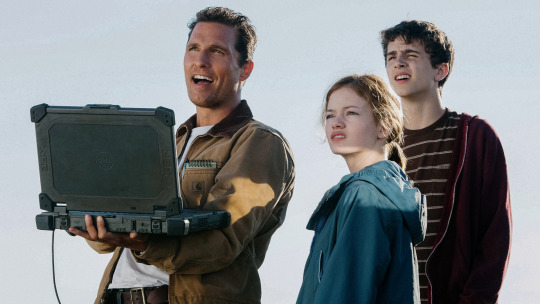
Matthew McConaughey as Joseph ‘Coop’ Cooper, Mackenzie Foy as Murph, and Timothée Chalamet as Tom.
In transmitting (via morse code) what the robot TARS has observed from inside the black hole, Cooper provides Murph with the data to solve the gravity problem required to uplift Earth’s population from its depleted home planet. Humanity is saved. Love wins again. Hard sci-fi goes soft. Christopher Nolan’s genius is confirmed, and any notions of emotionlessness are emphatically washed away.
This earnest centering of love in Interstellar is key to the film’s universal appeal, and undoubtedly plays a large role in why it features so prominently in three significant Letterboxd lists determined by pronoun: Interstellar is the only film that appears in all three top tens of “most fans on Letterboxd” when considering members who use the pronoun he/him, she/her and xe/ze. (“Most fans” refers to Letterboxd members who have selected the film as one of the four favorites on their profile.)
To get a bit reductionist myself, sci-fi adventure—in cinema, at least—has traditionally been a masculine-leaning genre, but Interstellar’s placement across these three lists points to it having superseded that traditional leaning, hopefully for the better.
Yet the film reliably still provokes reactions like this delightful tweet:
few movies make me as mad as Interstellar. who the fuck makes 3/4 of an excellent hard sci-fi movie backed up by actual science and then abruptly turns it into soft sci-fi about how the power of love and time traveling bookshelves can save us in the final 1/4? damn you, Nolan
— the thicc husband & father (@lukeisamazing)
February 13, 2021
Although this tweet is somewhat indicative of how many men (and women, for that matter) respond to the film, I think it’s pretty clear the writer actually loves Interstellar wholeheartedly, final quarter and all, but perhaps feels inhibited from expressing that love by the expectations of a gendered society that is becoming increasingly outdated. The “damn you, Nolan” is possibly a concession of sorts—he’s damning how Nolan really made him feel the love at the end. It’s okay, @lukeisamazing, you don’t have to say it out loud.
Conversely, it can be put like this:
“The emotion of Interstellar is three-fold: Nolan’s script, co-written with his brother as with all his best stuff, masters not only notions of black holes, wormholes, quantum data and telemetry, but it also makes a case for love as the one thing—feeling, fact, movement, message—that can mean more and do more than anyone in our current time, on our existing planet, can comprehend.”
The writer of this stirring summation, our own Ella Kemp, is paraphrasing a critical section of the film, when Nolan goes full literal on the concept of love and has Cooper and Dr Amelia Brand (Anne Hathaway) debate its very nature, quoted in part at the top of this story. It comes when the pair are trying to decide which potentially humanity-saving planet to use their dwindling fuel reserves to travel to. Brand is advocating for the planet where a man she loves might be waiting for her, instead of the planet that has ostensibly better circumstances for life.
Brand: “Love is the one thing we’re capable of perceiving that transcends dimensions of time and space. Maybe we should trust that even if we can’t understand it.”
“Love has meaning, yes,” responds Cooper, heretofore the film’s most outwardly love-centric character, exhibiting a stoic longing for his dead wife, while also abandoning his ten-year-old daughter on Earth for a space adventure (albeit one designed to save humanity) than has now inadvertently taken decades. “Social utility. Social bonding. Child rearing.” Ouch.
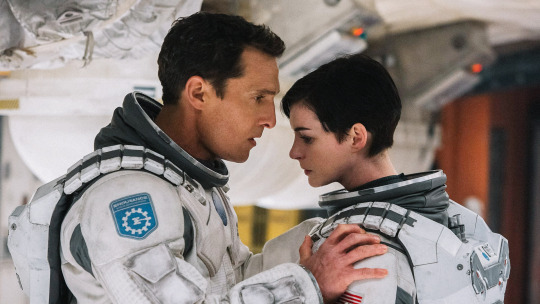
McConaughey with Anne Hathaway as Dr. Amelia Brand.
Brand: “You love people who have died. Where’s the social utility in that? Maybe it means something more. Something we don’t yet understand. Some evidence, some artefact of a higher dimension that we can’t consciously perceive. I’m drawn across the universe to someone I haven’t seen in a decade who I know is probably dead. Love is the one thing we’re capable of perceiving that transcends dimensions of time and space. Maybe we should trust that even if we can’t understand it yet.” Amen.
Cooper remains unconvinced by Brand’s rationale, but this dispassionate display presages him going on to realize the true (literal) power of love (and his poor, science-only decision-making—thanks Matt Damon) when it provides him the aforementioned channel of communication with Murph in the tesseract. Nolan has a female character make the most eloquent vocal argument for love, but it’s the male character who has to learn it through experience.
So while Interstellar does initially conform to some prevailing cultural ideas about love and how it supposedly relates to gender, it ultimately advocates for a greater appreciation of the concept that moves beyond such binary notions. That is reflected in how important the film is to Letterboxd members who self-identify as he/him, she/her and xe/ze. We all love this movie. Emphasis on love.
Brand’s speech—not to mention the film as a whole—also can’t help but inform the current global situation. Interstellar argues for a greater devotion to both science and love, in harmony; such devotion might have mitigated the devastating effects of the coronavirus pandemic where both concepts were drastically undervalued by many of those in charge of the response.
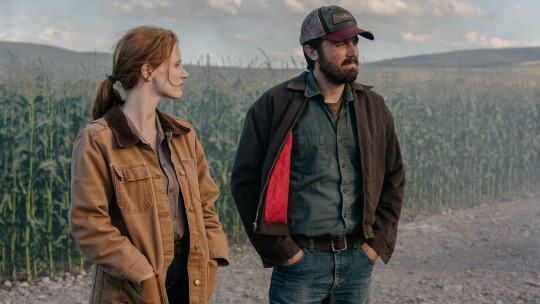
Jessica Chastain and Casey Affleck as the grown-up Cooper siblings.
Despite the reactions cited above, responses to Interstellar aren’t always split down gender lines. We’re all allowed to feel whatever we like about it, and substantial variety comes across in the many, many reviews for the film.
Zaidius says Interstellar is so good that, “after watching [it], you will want to downgrade all of the ratings you have ever given on Letterboxd.”
On the other hand, Singlewhitefemalien takes issue with Dr. Brand’s aforementioned love-based decision-making in her two-star review: “She wants to fuckin’ go to Planet Whatever to chase after a dude she banged ten years ago because women are guided by their emotions and love is all you need.” A perhaps fair assessment of the role Nolan chose his sole female astronaut to play in the film?
Sam offers food for thought when he writes “First, you love Interstellar; then you understand Interstellar.”
Letterboxd stalwart Lucy boils it down effectively in one of her multiple five-star reviews of the film: “I needed a really good cry.” It’s hard to say whether Vince is agreeing or disagreeing with Lucy in his review: “Fuck you Matthew McConaughey for making me cry.” The catharsis this movie provides for dudes becomes clearer the deeper you venture into our Interstellar reviews (and I ventured deep): “How dare this fucking movie make me cry… twice,” writes John. Let it out, John.
Then there’s Rudi’s take: “I sobbed like an animal while watching this but I’m not exactly sure what animal it was like. Like a pig? Like a whale? I don’t know but I do know that I cried a whole fucking lot.”
Emotionless? With all this crying?
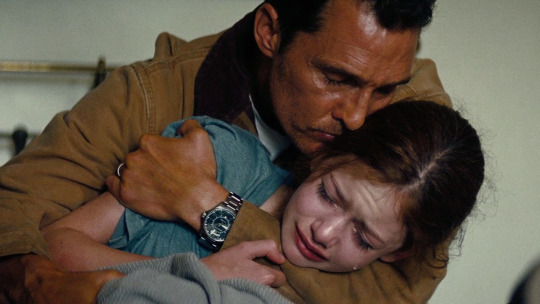
Christopher Nolan inspires more debate than any other filmmaker of the modern age (when we’re not getting unnecessarily riled up about something Marty has said, that is) and while Nolan has the passionate devotion of millions of viewers, I’d argue he still doesn’t quite get his due. Especially when it comes to Interstellar.
By so successfully using love as both a metaphorical vessel and a palpable plot point in a sci-fi adventure film, he built on notable antecedents like James Cameron’s The Abyss and Robert Zemeckis’ Contact, two (great) films with similar aspirations that didn’t stick the landing as well as Interstellar does. In Contact, McConaughey engages in a similar debate about love to the one quoted above, but notably takes the opposing side.
Steven Spielberg (who at one point was going to direct an earlier iteration of Interstellar) did a pretty good job of showing love as the most powerful force in the universe with E.T. the Extra-Terrestrial, but there hasn’t been a huge amount of room for such notions in the genre since then.
Kubrick’s 2001: A Space Odyssey, Interstellar’s most obvious forebear, is often accused of being the director’s most brazenly emotionless film. And while that’s perhaps a bit more understandable than some of the brickbats hurled Nolan’s way, there’s more emotion in the character of Hal 9000 than in many major directors’ entire oeuvre. It’s also, in part due to Hal’s place in the examination of queer consciousness in the sci-fi realm, the film currently in the number one spot on the xe/ze list.
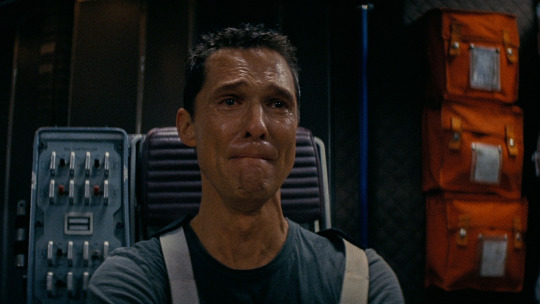
Two films that notably exist in Interstellar’s wake are Denis Villeneuve’s Arrival, which expands upon Interstellar’s creative use of time-bending (and like Contact, features a female protagonist) and James Gray’s Ad Astra, which tackles the perils of traditional masculinity with more directness.
Interstellar doesn’t solve the sci-fi genre’s cumbersome relationship with masculinity and gender, but it makes significant strides in breaking down the existing paradigms, if only from all the GIFs of McConaughey crying it has spawned. Its appeal across the gender spectrum is an interesting and encouraging sign of the universality of its themes. And the power of love.
Fans out of touch with their feelings may complain about the role love plays in the film, but that says more about them than it does the film. Love wins. Also: TARS. How could anyone not love TARS?
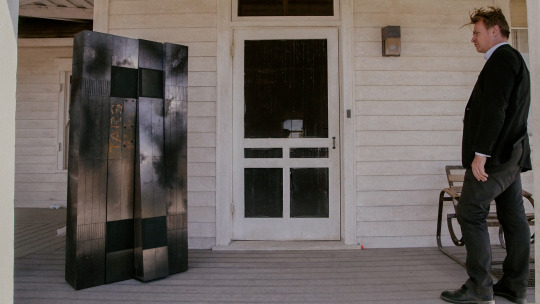
TARS and Christopher Nolan.
Related content
Men/Boys Crying: a master list
“I Ugly-Cried Like Matthew McConaughey in Interstellar”: Amanda’s list
“I Liked Interstellar”: Sar’s list of what to watch afterwards
Follow Dominic on Letterboxd
#interstellar#christopher nolan#2001 a space odyssey#stanley kubrick#letterboxd#science fiction#sci fi#sci fi film#sci fi movies#queer consciousness#the meaning of life#love
30 notes
·
View notes
Text
2020 in Movies - My Top 30 Fave Movies (Part 1)

30. BODY CAM – in the face of the ongoing pandemic, viral outbreak cinema has become worryingly prescient of late, but as COVID led to civil unrest in some quarters there were a couple of 2020 films that REALLY seemed to put their finger on the pulse of another particularly shitty zeitgeist. Admittedly this first one highlights a problem that’s been around for a while now, but it came along at just the right time to gain particularly strong resonance, filtering its message into the most reliable form of allegorical social commentary – horror. The vengeful ghost trope has become pretty familiar since the Millennium, but by marrying it with the corrupt cop thriller veteran horror screenwriter Nicholas McCarthy (The Pact) has given it a nice fresh spin, and the end result is a real winner. Mary J. Blige plays troubled LAPD cop Renee Lomito-Smith, back on the beat after an extended hiatus following a particularly harrowing incident, just as fellow officers from her own precinct begin to die violent deaths under mysterious circumstances, and the only clues are weird, haunting camera footage that only Renee and her new partner, rookie Danny Holledge (Paper Towns and Death Note’s Nat Wolff), manage to see before it inexplicable wipes itself. Something supernatural is stalking the City of Angels at night, and it’s got a serious grudge against local cops as the increasingly disturbing investigation slowly brings an act of horrific police brutality to light, until Renee no longer knows who in her department she can trust. This is one of the most insidious scare-fests I enjoyed this past year, sophomore director Malik Vitthal (Imperial Dreams) weaving an effective atmosphere of pregnant dread and wire-taut suspense while delivering some impressively hair-raising shocks (the stunning minimart sequence is the film’s undeniable highlight), while the ghostly threat is cleverly thought-out and skilfully brought to “life”. Blige delivers another top-drawer performance, giving Renee a winning combination of wounded fragility and steely resolve that makes for a particularly compelling hero, while Wolff invests Danny with skittish uncertainty and vulnerability in one of his strongest performances to date, and Dexter star David Zayas brings interesting moral complexity to the role of their put-upon superior, Sergeant Kesper. In these times of heightened social awareness, when the police’s star has become particularly tarnished as unnecessary force, racial profiling and cover-ups have become major hot-button topics, the power and relevance of this particular slice of horror cinema cannot be denied.
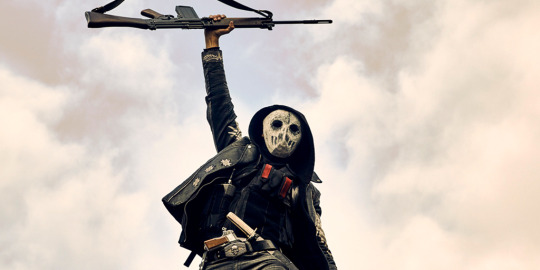
29. BLOOD QUANTUM – 2020 certainly was a great year for horror (even if most of the high profile stuff did get shunted into 2021), and this compellingly fresh take on the zombie outbreak genre was a strong standout with a killer hook. Canadian writer-director Jeff Barnaby (Rhymes for Young Ghouls) has always clung close to his Native American roots, and he brings strong social relevance to the intriguing early 80s Canadian setting as a really nasty zombie virus wreaks havoc in the Red Crow Indian Reservation and its neighbouring town. It soon becomes clear, however, that members of the local tribe are immune to the infection, a revelation with far-reaching consequences as the outbreak rages unchecked and society begins to crumble. Barnaby pulls off some impressive world-building and creates a compellingly grungy post-apocalyptic vibe as the story progresses, while the zombies themselves are a visceral, scuzzy bunch, and there’s plenty of cracking set-pieces and suitably full-blooded kills to keep the gore-hounds happy, while the horror has real intelligence behind it, the script posing interesting questions and delivering some uncomfortable answers. The characters, meanwhile, are a well-drawn, complex bunch, no black-and-white saviours among them, any one of them capable of some pretty inhuman horrors when the chips are down, and the cast, an interesting mix of seasoned talent and unknowns, all excel in their roles – Michael Greyeyes (Fear the Walking Dead) and Forrest Goodluck (The Revenant) are the closest things the film has to real heroes, the former a fallible everyman as Traylor, the small-town sheriff who’s just trying to do right by his family, the latter unsure of himself as his son, put-upon teenage father-to-be Joseph; Olivia Scriven, meanwhile is tough but vulnerable as his pregnant white girlfriend Charlie, Stonehorse Lone Goeman is a grizzled badass as tough-as-nails tribal elder Gisigu, and Kiowa Gordon (probably best known for playing a werewolf in the Twilight movies) really goes to the dark side as Joseph’s delinquent half-brother Lysol, while there’s another memorably subtle turn from Dead Man’s Gary Farmer as unpredictable loner Moon. This was definitely one of the year’s darkest films – largely playing the horror straight, it tightens the screws as the situation grows steadily worse, and almost makes a virtue of wallowing in its hopeless tone – but there’s a fatalistic charm to all the bleakness, even in the downbeat yet tentatively hopeful climax, while it’s hard to deny the ruthless efficiency of the violence on display. This definitely isn’t a horror movie for everyone, but those with a strong stomach and relatively hard heart will find much to enjoy here. Jeff Barnaby is definitely gonna be one to watch in the future …

28. THE MIDNIGHT SKY – Netflix’ big release for the festive season is a surprisingly understated and leisurely affair, a science fiction drama of big ideas which nonetheless doesn’t feel the need to shout about it. The latest feature in the decidedly eclectic directorial career of actor George Clooney, this adaptation of Good Morning, Midnight, the debut novel of up-and-coming author Lily Brooks-Dalton, favours characterisation and emotion over big thrills and flashy sequences, but it’s certainly not lacking in spectacle, delivering a pleasingly ergonomically-designed view of the near future of space exploration that shares some DNA with The Martian but makes things far more sleek and user-friendly in the process. Aether, a NASA mission to explore K-23, a newly-discovered, potentially habitable moon of Jupiter, is on its return journey, but is experiencing baffling total communications blackouts from Earth. This is because a catastrophic global event has rendered life on the planet’s surface all but impossible, killing most of the population and driving the few survivors underground. K-23’s discoverer, professor Augustine Lofthouse (Clooney), is now alone at a small research post in the extreme cold of the Arctic, one of the only zones left that have not yet been fully effected by the cataclysm, refusing to leave his post after having discovered he’s dying from a serious illness, but before he goes he’s determined to contact the crew of Aether so he can warn them of the conditions down on Earth. Despite the ticking clock of the plot, Clooney has reigned the pace right in, allowing the story to unspool slowly as we’re introduced to the players who calmly unpack their troubles and work over the various individual crises with calm professionalism – that said, there are a few notable moments of sudden, fretful urgency, and these are executed with a palpable sense of chaotic tension that create interesting and exciting punctuation to the film’s usually stately momentum, reminding us that things could go suddenly, catastrophically wrong for these people at any moment. Clooney delivers a gloriously understated performance that perfectly grounds the film, while there are equally strong, frequently DAMN POWERFUL turns from a uniformly excellent cast, notably Felicity Jones and David Oyelowo as pregnant astronaut Dr. “Sully” Sullivan and her partner, mission Commander Adewole, and a surprisingly subtle, nuanced performance from newcomer Caoilinn Springall as Iris, a young girl mistakenly left behind at the outpost during the hasty evacuation, with whom Lofthouse develops a deeply affecting bond. The film has been criticised for its slowness, but I think in this age of BIGGER, LOUDER, MORE this is a refreshingly low-key escape from all the noise, and there’s a beautiful trade-off in the script’s palpable intelligence, strong character work and world-building (then again, the adaptation was by Mark L. Smith, who co-wrote The Revenant), while this is a visually stunning film, Clooney and cinematographer Martin Ruhe (Control, The Keeping Room) weaving an evocative visual tapestry that rewards the soul as much as the eye. Unapologetically smart, engrossingly played and overflowing with raw, emotional power, this is science fiction cinema at its most cerebral, and another top mark for a somewhat overlooked filmmaking talent which deserves to be considered alongside career highs such as Good Night & Good Luck and The Ides of March.

27. PALM SPRINGS – the summer’s comedy highlight kind of snuck in under the radar, becoming something of an on-demand secret weapon with all the cinemas closed, and it definitely deserves its swiftly growing cult status. You certainly can’t believe it’s the feature debut of director Max Barbakow, who shows the kind of sharp-witted, steady-handed control of his craft that’s usually the province of far more experienced talents … then again, much of the credit must surely go to seasoned TV comedy writer Andy Siara (Lodge 49), for whom this has been a real labour of love he’s been tending since his film student days. Certainly all that care, nurture and attention to detail is up there on the screen, the exceptional script singing its irresistible siren song from the start and providing fertile ground for its promising new director to spread his own creative wings. The premise may be instantly familiar – playing like a latter-day Saturday Night Live take on Groundhog Day (Siara admits it was a major influence), it follows the misadventures of Sarah (How I Met Your Mother’s Cristin Miliota), the black sheep maid of honour at her sweet little sister Tala’s (Riverdale’s Camila Mendes) wedding to seemingly perfect hunk Abe (the Arrowverse’s Superman, Tyler Hoechlin), as she finds herself repeating the same high-stress day over and over again after becoming trapped in a mysterious cosmic time-loop along with slacker misanthrope Nyles (Brooklyn Nine Nine megastar Andy Samberg), who’s been stuck in this same situation for MUCH longer – but in Barbakow and Siara’s hands it feels fresh and intriguing, and goes in some surprising new directions before the well-worn central premise can outstay its welcome. It certainly doesn’t hurt that the cast are all excellent – Miliota is certainly the pounding emotional heart of the film, effortlessly lovable as she flounders against her lot, then learns to accept the unique possibilities it presents, before finally resolving to find a way out, while Samberg has rarely been THIS GOOD, truly endearing in his sardonic apathy as it becomes clear he’s been here for CENTURIES, and they make an enjoyably fiery couple with snipey chemistry to burn; meanwhile there’s top-notch support from Mendes and Hoechlin, The OC’s Peter Gallagher as Sarah and Tala’s straight-laced father, the ever-reliable Dale Dickey, a thoroughly adorable turn from Jena Freidman and, most notably, a full-blooded scene-stealing performance from the mighty J.K. Simmonds as Roy, Nyles’ nemesis, who he inadvertently trapped in the loop before Sarah and is, understandably, none too happy about it. This really is an absolute laugh-riot, today’s more post-modern sense of humour allowing the central pair (and their occasional enemy) to indulge in far more extreme consequence-free craziness than Bill Murray ever got away with back in the day, but like all the best comedies there’s also a strong emotional foundation under the humour, leading us to really care about these people and what happens to them, while the story throws moments of true heartfelt power at us, particularly in the deeply cathartic climax. Ultimately this was one of the year’s biggest surprises, a solid gold gem that I can’t recommend enough.

26. THE LAST DAYS OF AMERICAN CRIME – Body Cam’s fellow heavyweight Zeitgeist fondler is a deeply satirical chunk of speculative dystopian sci-fi clearly intended as a cinematic indictment of Trump’s broken America, but it became far more potent and prescient in these … ahem … troubled times. Adapted by screenwriter Karl Gadjusek (Oblivion, Stranger Things, The King’s Man) from the graphic novel by Rick Remender and Greg Tocchini for underrated schlock-action cinema director Olivier Megaton (Transporter 3, Colombiana, the last two Taken films), this Netflix original feature seemed like a fun way to kill a cinema-deprived Saturday night in the middle of the First Lockdown, but ultimately proved to have a lot more substance than expected. It’s powered by an intriguing premise – in a nearly lawless 2024, the US government is one week away from implementing a nationwide synaptic blocker signal called the API (American Peace Initiative) which will prevent the public from being able to commit any kind of crime – and focuses on a strikingly colourful bunch of outlaw antiheroes with an audacious agenda – prodigious Detroit bank robber Bricke (Édgar Ramiréz) is enlisted by Kevin Cash (Funny Games and Hannibal’s Michael Carmen Pitt), a wayward scion of local crime family the Dumois, and his hacker fiancée Shelby Dupree (Material Girl’s Anna Brewster) to pull off what’s destined to be the last great crime in American history, a daring raid on the first night of the signal to steal over a billion dollars from the Motor City’s “money factory” and then escape across the border into Canada. From this deceptively simple premise a sprawling action epic was born, carried along by a razor sharp, twisty script and Megaton’s typically hyperbolic, showy auteur directing style and significant skill at crafting thrillingly explosive set-pieces, while the cast consistently deliver quality performances. Ever since Domino, Ramiréz has long been one of those actors I really love to watch, a gruff, quietly intense alpha male whose subtle understatement hides deep reserves of emotional intensity, while Dupree takes a character who could have been a thinly-drawn femme fetale and invests her with strong personal drive and steely resolve, and there’s strong support from Neil Blomkampf regulars Sharlto Copley and Brandon Auret as, respectively, emasculated beat cop Sawyer and brutal Mob enforcer Lonnie French, as well as a nearly unrecognisable Patrick Bergin as local kingpin (and Kevin’s father) Rossi Dumois; the film is roundly stolen, however, by Pitt, a phenomenal actor I’ve always thought we just don’t see enough of, here portraying a spectacularly sleazy, unpredictable force of nature who clearly has his own dark agenda, but whom we ultimately can’t help rooting for even as he stabs us in the back. This is a cracking film, a dark and dangerous thriller of rare style and compulsive verve that I happily consider to be Megaton’s best film to date BY FAR – needless to say it was a major hit for Netflix when it dropped, clearly resonating with its audience given what’s STILL going on in the real world, and while it may have been roundly panned in reviews I think, like some of the platform’s other glossier Original hits (Bright springs to mind), it’s destined for a major critical reappraisal and inevitable cult status before too long …

25. BILL & TED FACE THE MUSIC – one of the year’s biggest surprise hits for me was also one I was really nervous about – the original Bill & Ted’s Excellent Adventure and its just-as-good sequel Bogus Journey have been personal favourites for years, pretty much part of my geeky developmental DNA during my youth, two gleefully dorky indulgences that have, against the odds, aged like fine wine for me over the years. I love Bill and Ted SO MUCH, so like many of the fans I’ve always wanted a third film, but I knew full well how easy it would have been for it to turn out to be a turd (second sequels can be tricky things, and we’ve seen SO MANY fail over the years). God bless Alex Winter and Keanu Reeves for never giving up on the possibilities, then, and for the original screenwriters, Chris Matheson and Ed Solomon, for writing something that does true justice and pays proper respect to what came before while fully realising how much times have changed in the TWENTY-NINE YEARS that have passed since Wyld Stallyns last graced our screens. Certainly times have moved on for our irrepressible pair – in spite of their convictions, driven by news from the distant future that their music would unite the world and usher in a new era of peace and prosperity, Bill and Ted have spectacularly failed to achieve what was expected of them, and they’ve grown despondent even though they’re still happily married to the Princesses and now the fathers of two wonderful girls, Billie and Thea (Atypical’s Brigette Lundy-Paine and Ready Or Not’s Samara weaving). Then an emissary from the future arrives to inform them that if they don’t write the song that unites the world TODAY, the whole of reality will cease to exist. No pressure, then … it may have been almost three decades, but our boys are BACK in a riotous comedy adventure that delivers on all the promises the franchise ever made before. Winter and particularly Reeves may have both gone onto other things since, but they step back into their roles with such ease it’s like Bill and Ted have never been away, perfectly realising not only their characters today but also various future incarnations as they resolve to go forward in time to take the song from themselves AFTER they’ve already written it (a most triumphant and fool-proof plan, surely); Lundy-Paine and Weaving, meanwhile, are both absolutely FANTASTIC throughout, creating a pair of wonderfully oddball, eccentric and thoroughly adorable characters who would be PERFECT to carry the franchise forward in the future, while it’s an absolute joy to see William Sadler return as Bogus Journey’s fantastically neurotic incarnation of Death himself, and there are quality supporting turns from Flight of the Conchords’ Kristen Schaal, Anthony Carrigan, Holland Taylor and of course Hal Landon Jr., once again returning as Ted’s grouchy cop father Captain Logan. The plot is thoroughly bonkers and of course makes no logical sense, but then they’re never meant to in these movies – the whole point is just to have fun and GO WITH IT, and it’s unbelievably easy when the comedy hit rate is THIS HIGH – turns out third time really is the charm for Matheson and Solomon, who genuinely managed a hat trick with the whole trilogy, while there was no better choice of director to usher this into existence than Dean Parisot, the man who brought us Galaxy Quest. This is the perfect climax to a trilogy we’ve been waiting YEARS to see finally completed, but it’s also shown a perfect way to forge ahead in new and interesting ways with the next generation – altogether, then, this is another most excellent adventure …
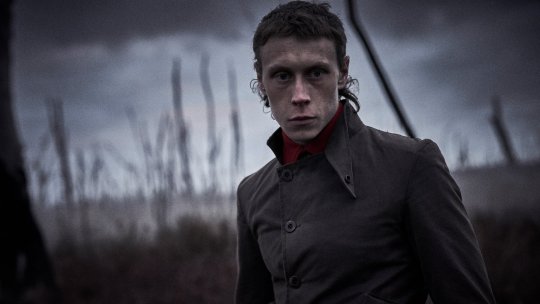
24. TRUE HISTORY OF THE KELLY GANG – Justin Kurzel has been on my directors-to-watch list for a while now, each of his offerings impressing me more than the last (his home-grown Aussie debut, Snowtown, was a low key wallow in Outback nastiness, while his follow up, Macbeth, quickly became one of my favourite Shakespeare flicks, and I seem to be one of the frustrated few who actually genuinely loved his adaptation of Assassin’s Creed, considering it to be one the very best video game movies out there), and his latest is no exception – returning to his native Australia, he’s brought his trademark punky grit and fever-dream edginess to bear in his quest to bring his country’s most famous outlaw to the big screen in a biopic truly worthy of his name. Two actors bring infamous 19th Century bushranger Ned Kelly to life here, and they’re both exceptional – the first half of the film sees newcomer Orlando Schwerdt explode onto the screen as the child Ned, all righteous indignation and fiery stubbornness as he rails against the positions his family’s poverty continually put him in, then George MacKay (Sunshine On Leith, Captain Fantastic) delivers the best performance of his career in the second half, a barely restrained beast as Ned grown, his mercurial turn bringing the man’s inherent unpredictability to the fore. The Babadook’s Essie Davis, meanwhile, frequently steals the film from both of them as Ellen, the fearsome matriarch of the Kelly clan, and Nicholas Hoult is similarly impressive as Constable Fitzpatrick, Ned’s slimily duplicitous friend/nemesis, while there are quality supporting turns from Charlie Hunnam and Russell Crowe as two of the most important men of Ned’s formative years. In Kurzel’s hands, this account of Australia’s greatest true-life crime saga becomes one of the ultimate marmite movies – its glacial pace, grubby intensity and frequent brutality will turn some viewers off, but fans of more “alternative” cinema will find much to enjoy here. There’s a blasted beauty to its imagery (this is BY FAR the bleakest the Outback’s ever looked on film), while the screenplay from relative unknown Shaun Grant (adapting Peter Carey’s bestselling novel) is STRONG, delivering rich character development and sublime dialogue, and Kurzel delivers some brilliantly offbeat and inventive action beats in the latter half that are well worth the wait. Evocative, intense and undeniable, this has just the kind of irreverent punk aesthetic that I’m sure the real life Ned Kelly would have approved of …
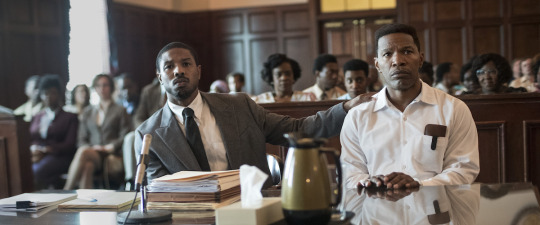
23. MUST MERCY – more true-life cinema, this time presenting an altogether classier account of two idealists’ struggle to overturn horrific racial injustices in Alabama. Writer-director Destin Daniel Cretton (Short Term 12, The Glass Castle) brings heart, passion and honest nobility to the story of fresh-faced young lawyer Bryan Stevenson (Michael B. Jordan) and his personal crusade to free Walter “Johnny D” McMillan (Jamie Foxx), an African-American man wrongfully sentenced to death for the murder of a white woman. His only ally is altruistic young paralegal Eva Ansley (Cretton’s regular screen muse Brie Larson), while the opposition arrayed against them is MAMMOTH – not only do they face the cruelly racist might of the Alabama legal system circa 1989, but a corrupt local police force determined to circumvent his efforts at every turn and a thoroughly disinterested prosecutor, Tommy Chapman (Rafe Spall), who’s far too concerned with his own personal political ambitions to be any help. The cast are uniformly excellent, Jordan and Foxx particularly impressing with career best performances that sear themselves deep into the memory, while there’s a truly harrowing supporting turn from Rob Morgan as Johnny D’s fellow Death Row inmate Herbert, whose own execution date is fast approaching. This is courtroom drama at its most gripping, Cretton keeping the inherent tension cranked up tight while tugging hard on our heartstrings for maximum effect, and the result is a timely, racially-charged throat-lumper of considerable power and emotional heft that guarantees there won’t be a single dry eye in the house by the time the credits roll. Further proof, then, that Destin Daniel Cretton is one of those rare talents of his generation – next up is his tour of duty in the MCU with Shang-Chi & the Legend of the Ten Rings, and while this seems like a strange leftfield turn given his previous track record, I nevertheless have the utmost confidence in him after seeing this …
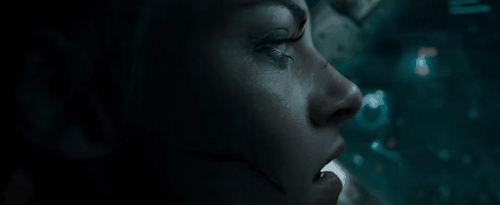
22. UNDERWATER – at first glance, this probably seems like a strange choice for the year’s Top 30 – a much-maligned, commercially underperforming glorified B-movie creature-feature headlined by the former star of the Twilight franchise, there’s no way that could POSSIBLY be any good, surely? Well hold your horses, folks, because not only is this very much worth your time and a comprehensive suspension of your low expectations, but I can’t even consider this a guilty pleasure – as far as I’m concerned this is a GENUINELY GREAT FILM, without reservation. The man behind the camera is William Eubank, a director whose career I’ve been following with great interest since his feature debut Love (a decidedly odd but strangely beautiful little space movie) and its more high profile but still unapologetically INDIE follow-up The Signal, and this is the one where he finally delivers wholeheartedly on all that wonderful sci-fi potential. The plot is deceptively simple – an industrial conglomerate has established an instillation drilling right down to the very bottom of the Marianas Trench, the deepest point in our Earth’s oceans, only for an unknown disaster to leave six survivors from the operation’s permanent crew stranded miles below the surface with very few escape options left – but Eubank and writers Brian Duffield (Spontaneous, Love & Monsters, Jane Got a Gun, Insurgent) and Adam Cozad (The Legend of Tarzan) wring all the possible suspense and fraught, claustrophobic terror out of the premise to deliver a piano wire-tense horror thriller that grips from its sudden start to a wonderfully cathartic climax. The small but potent cast are all on top form, Vincent Cassel, Jessica Henwick (Netflix’ Iron Fist) and John Gallagher Jr. (Hush, 10 Cloverfield Lane) particularly impressing, and even the decidedly hit-and-miss T.J. Miller delivers a surprisingly likeable turn here, but it’s that Twilight alumnus who REALLY sticks in your memory here – Kristen Stewart’s been doing a pretty good job lately distancing herself from the role that, unfortunately, both made her name and turned her into an object of (very unfair) derision for many years, but in my opinion THIS is the performance that REALLY separates her from Bella effing-Swan. Mechanical engineer Norah Price is tough, ingenious and fiercely determined, but with the right amount of vulnerability that we really root for her, and Stewart acts her little heart out in a turn sure to win over her strongest detractors. The creature effects are impressive too, the ultimate threat proving some of the nastiest, most repulsively icky creations I’ve seen committed to film, and the inspired design work and strong visual effects easily belie the film’s B-movie leanings. Those made uneasy by deep, dark open water or tight, enclosed spaces should take heed that this can be a tough watch, but anyone who likes being scared should find plenty to enjoy here. Altogether a MUCH better film than its mediocre Rotten Tomatoes rating makes it out to be …
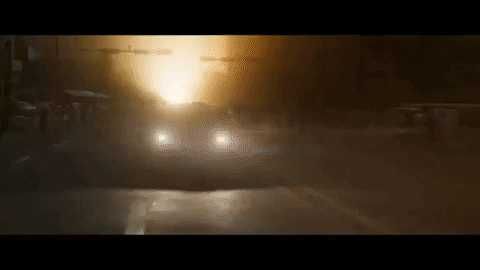
21. PENINSULA – back in 2016, Korean director Yeon Sang-ho and writer Park Joo-suk took the tired old zombie outbreak trope and created something surprisingly fresh with their darkly satirical action horror Train to Busan. The film was, deservedly, a massive international smash hit and a major shot in the arm for the sub-genre on the big screen, so a sequel was inevitable, but when the time came for them to follow it up they did the smart thing and went in a very different direction. Jettisoning much of the humour to create something much darker and more intense, they also ramped the action quotient right up to eleven, creating a nightmarish post-apocalyptic version of Korea which has been quarantined from the rest of the world for the last four years, where the few uninfected survivors eke out a dangerous day-to-day existence amidst the burgeoning undead hordes, and the value of human life has plummeted dramatically. Into this hell-on-earth must venture a small band of Korean refugees, sent by a Hong Kong crime boss to retrieve a multi-million dollar payday in stolen loot that got left behind in the evacuation, led by former ROK Marine Corps Captain Jung-seok (Secret Reunion’s Gang Don-won), a man with a tragic past he has to make up for. Needless to say, nothing goes according to plan … Train to Busan was an unexpected masterpiece of the genre, but I was even more bowled over by this, particularly since I got to see this on the big screen on Halloween night itself, just before the UK cinemas closed down again for the Second Lockdown. This certainly is a film that NEEDS to be seen first on the big screen – the fully-realised hellscape of undead-overrun Seoul is spectacularly immersive, the perfect cinematic playground for the film’s most impressive set-pieces, two astounding, protracted high-speed chases with searchlight-and-flair-lit all-terrain vehicles racing through the dark streets pursued by tidal waves of feral zombies. Sure, the plot is predictable and the tone gets a little overblown and maudlin at times, while some of the characters are drawn in decidedly broad strokes, but the breathless pace rarely lets up throughout, and there are moments of genuine fiendish genius on offer here, particularly in a truly disturbing centrepiece sequence in which desperate human captives are set against slavering undead in a makeshift amphitheatre for sport, as well as a particularly ingenious use for radio-controlled cars. And the cast are brilliant, with Don-won providing a suitably robust but also pleasingly fallible, wounded hero, while Hope’s Lee Re and newcomer Lee Ye-won are irrepressibly feisty and thoroughly adorable as the young girls who rescue him from certain death among the ruins. Altogether, this is horror cinema writ large, played more for thrills than scares but knuckle-whitening and brutally effective nonetheless, and in a year where outbreak horror became all too real for us anyway it was nice to be able to enjoy something a little more escapist anyway – given the strength of its competition in 2020, this top-notch sequel to a true genre gem did very well indeed to place this high. I’ll admit, I wouldn’t say no to thirds …
#body cam#body cam movie#blood quantum#the midnight sky#Palm Springs#palm springs movie#the last days of american crime#bill and ted face the music#true history of the kelly gang#just mercy#underwater#underwater movie#underwater 2020#peninsula#train to busan presents: peninsula#2020 in movies
21 notes
·
View notes
Text
Caught in his web, Chapter 18
TITLE: Caught in his web
CHAPTER NO./ONE SHOT: Chapter 18
AUTHOR: fanficshiddles
ORIGINAL IMAGINE: Imagine Loki is a crime lord, a very dangerous man in the city. He is owed money, but the man is unable to pay Loki back, so Loki takes his daughter as payment instead.
RATING: M
‘Your move.’ Said Loki, motioning to the chess board.
Chloe leaned forward and thought for a moment before making her move.
As much as she didn’t want to admit it, over the last week or so she actually started to enjoy playing chess. Part of her liked to think it was because she got an alcoholic drink whenever she played with Loki.
She didn’t find being in his company quite as revolting as she had done either, after their talk the other day when she was going through her migraine, he seemed a bit more human in her eyes now. That he wasn’t just some killer robot guy.
But she still was tiptoeing on eggshells around him. Never sure what to expect really. But this evening he seemed to be in a rather joyful mood.
‘Are you planning to meet with any of your friends before Uni starts?’ Loki asked while they played.
Chloe looked up at him, confused. ‘Uhm… What?’
‘I’d say my question was quite clear, no?’
‘Yeah. I just… Would I be allowed to?’
‘Of course. You’re not a prisoner, Chloe. You just have to gain my trust more in regards to your freedom. But you are allowed out to meet friends, providing I know when and where. And you will take Nelson with you. He will drive you back and fore and keep an eye from a distance.’
Chloe didn’t really know what to make of that. But the mere thought of being able to go and meet her friends made her almost cry in happiness.
‘Thank you.’ She whispered and made her move.
Loki nodded at her, then thought about his move. But then an idea cropped into his mind.
‘Why don’t we make this game more interesting?’ He purred.
Uh oh. Chloe thought. She remembered last time they made bets for the game, it didn’t end well for her. She looked at him warily. His eyes were full of mischief, which unsettled her.
‘I’d really rather not.’ Chloe said quietly.
‘Oh come now. It will be fun.’ He grinned and rubbed his hands together. ‘Now, if I win… You give me a blowjob. And if you win, I will go down on you.’ He winked at her across the table.
‘Why are you betting that? You normally just force me to blow you.’ She snarled.
‘Force being the important word there. But this would mean it would be done willingly by the loser.’
‘I don’t have an option for this bet, do I?’ She grumbled, knowing full well what the answer would be.
‘Nope.’ Loki made a popping sound with the p. He looked really pleased about the new object of the game.
Chloe didn’t particularly want to win or lose. She actually wasn’t sure what would be better. But then she thought perhaps if she won, she could just let him off with it and say she didn’t want it. Maybe that was the best option, she decided.
So she concentrated hard, tried to anticipate what moves Loki was going to do next. She thought she was losing at one point, but to her delight she ended up winning.
‘Well done, doll. You win.’ He didn’t look displeased about losing, which Chloe wasn’t happy about. She had learned it was never a good thing if Loki was exceptionally happy.
‘Thanks… You don’t have to do it, though. It’s fine. I’ll just… go…’ She slid forward on the chair, ready to move.
‘No, no. You won fair and square.’ Loki said as he licked his lips and stood up abruptly, he stalked around the table towards her.
‘No… it’s fine. Honestly. I don’t want you to.’ Chloe tried to shrink as far away from him as she possibly could, but the chair was small so there wasn’t far to go.
Loki closed in on her, she tried to make a bolt for it, but got caught on the arm of the chair as she tried to run around the side. Loki reached out for her and she managed to dodge him, but when she made a dart for the door Loki easily caught her.
‘Come now, pet. You haven’t had your reward yet.’ He growled into her ear as he lifted her up and carried her kicking and protesting over to the sofa.
Loki chuckled as he tossed her down, she tried scrambling away but he grabbed her ankle and dragged her back towards him. He pulled her dress up and half off her, but left it when it was covering her head and her arms were slightly stuck upwards in it.
While she was struggling to get her dress out of the way, he yanked her tights off and tore at her panties. She didn’t really care about them, since he bought all her clothes and underwear anyway. But she was annoyed that he had been able to restrain her so easily and quickly with something so simple as her dress.
By the time she managed to get her dress pushed down around her middle again, it was too late. Her legs had been draped up over Loki’s shoulders and he had his hands clamped down on her thighs, holding her tightly open while his mouth latched onto her cunt.
She reached down and tried pushing at Loki’s head and tugging on his hair, but he growled and the vibrations washed over her. His tongue delved between her folds, up and down repeatedly. Then he latched onto her clit and Loki noticed that her hair pulling slowly ceased.
Loki started moaning while he ate her out. Chloe was losing her mind with the way he was attacking her clit, sucking and flicking her tongue across it quickly. And she was annoyed at herself for enjoying it, but even more so for giving up and letting him continue because it felt so damn amazing.
He chuckled against her when he felt her remove her hands from his hair and she started moaning freely, not holding anything back.
Loki made her cum with ease, multiple times. She started struggling again but from over-stimulation on her clit, he didn’t ease up though. Kept his lips latched around it that drove her insane.
By the time he was finished with her, she was screaming the house down. He made a smacking noise with his lips, his chin covered in her wetness as he crawled up over the top of her.
‘Well, considering I was the loser of the bet… It still felt like a win to me.’ He grinned and stroked her hair, enjoying the completely blissed out look in her eyes.
-
The following day Chloe was getting ready to go out. Something she never thought would happen while she was in Loki’s grasp. But there she was, away to meet two of her best friends.
‘You look lovely, doll.’ Loki’s voice startled her, she hadn’t heard him come into her room while she had been brushing her hair.
‘Nelson is waiting outside. He will take you to the cinema and keep an eye. If you need anything, just ask him. And here, now you’re allowed out you will need money.’ He reached into his pocket, pulled out his wallet and handed her a credit card.
‘Seriously?’ Chloe asked, taking it from him. She was shocked to see her name on it.
‘How else would you get popcorn and your ticket at the cinema?’ Loki smirked.
‘Uhm… Thanks.’ She said in slight disbelief.
‘Aren’t you going to ask?’ Loki folded his arms over his chest.
‘Ask what?’
‘How much is on there? I know you’re wanting to know. I can tell by the look on your face.’
Chloe sighed. ‘Well… kinda yeah.’
‘It’s connected to my account. So whatever you want or need… Within reason.’
‘Seriously?’ Chloe gasped again.
‘Yes, for the second time.’ Loki chuckled. But then he got serious and reached out to grip her chin firmly. ‘But I can cut it off within seconds if I find you’re trying to run away or do something stupid. So you better behave. Got it?’
Chloe felt her stomach twist a little at his warning. But she nodded.
‘Good girl. I don’t want to hear any bad reports. Now on you go, Nelson is waiting for you.’ He motioned to the door with his head and gave her bum a slap on her way past, earning a glare from her.
Chloe scurried on out, happy to be getting out of the house after SO long. On the drive to the cinema, she was really conflicted with recent events. But she hoped speaking to her friends would maybe help her to see clearly again.
33 notes
·
View notes
Text
Best of 2018
I watch a lot of films.
For close to five years now, I’ve been watching somewhere in the region of 100-150 new releases per year. At some point along the line, I started to keep lists of those films, then started to rank the movies on those lists, and eventually got into the habit of compiling end of year lists.
I shared these lists (and discussed them at great length in podcast form) in 2016 and 2017, and I wanted to do the same for 2018. With the Leftover Popcorn Podcast currently on an extended hiatus, that brought me to the post you’re reading right now.
Due to the quirks of global release schedules, the timing of these posts is always a little tricky. I’ve made a habit of finalising my lists just before the Oscars on an annual basis, as that generally affords the extra time required for many of the year’s most interesting films to make their way to me in Ireland.
As such, this list is comprised of my 20 favourite films that received either (a) a U.S. release in the Academy’s eligibility window for the 91st Academy Awards or (b) extremely belated releases in the UK and Ireland following late 2017 releases stateside.
Only time will reveal if 2018 was a particularly strong or interesting year for film, but I know it at least offered plenty of films that have stuck with me long after the end credits finished rolling. The year was filled with ideas, moments, shots, set-pieces and technical achievements that amazed and resonated with me in a wide variety of ways. Many of those highlights can be found in the 20 films below.
Before getting to the list, I have some honourable mentions. In no particular order, they include: Wildlife, The Favourite, Crazy Rich Asians, Hereditary, A Quiet Place, Three Identical Strangers, Beast, Shirkers, Mission: Impossible - Fallout, The Old Man and the Gun, Won’t You Be My Neighbor?, BlacKkKlansman.
20. A Star is Born - (Bradley Cooper)

The first hour of A Star is Born is as good as anything released this year and, as such, it’s by no means a criticism to say it falls off somewhat beyond that point. Still, Bradley Cooper’s directorial debut contains multiple moments that induce goosebumps. It’s not subtle by any means, but there have been very few films over the past decade that have managed to capture emotional extremes in such a truly cinematic fashion. Lady Gaga is sensational, Sam Elliott is a scene-stealer, and in the form of Cooper’s dog, Charlie*, a star is well and truly born
*In a year of fantastic canine performances, I think Charlie pips out Borras (Roma), Boris (Leave No Trace), Olivia (Widows) and Joy (Dogman) to be the best of the many good dogs.
19. Lean On Pete - (Andrew Haigh)
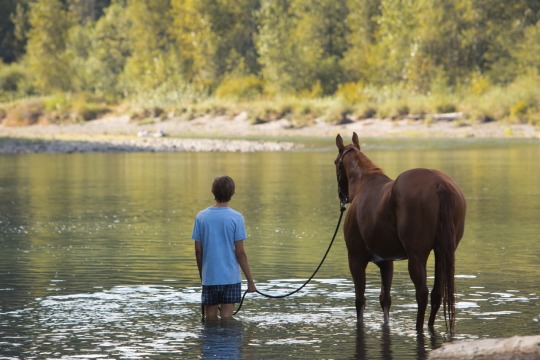
Andrew Haigh’s third feature sees the British filmmaker’s focus shift to the sumptuous expanse of rural middle America. In this touching story of a teenage boy and his attempts to save the eponymous also-ran racehorse, a delicate handle on the narrative complements stunning visuals to produce what should be the contradictory notion of an intimate epic.
It’s impossible not to fall for Charlie Plummer’s protagonist in the same fashion he has grown to love Lean On Pete, as the film’s central relationship reveals both boy and horse have equally been dealt a raw deal by their circumstances.
18. Happy New Year, Colin Burstead - (Ben Wheatley)
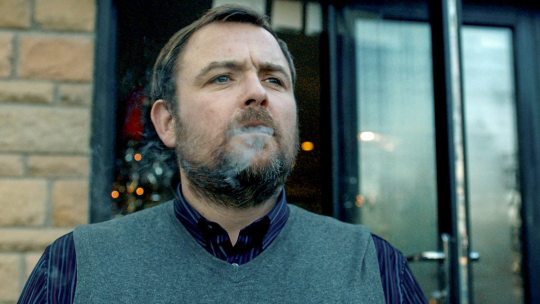
Ben Wheatley has emerged as an incredibly interesting and distinctive filmmaker over the past ten years, and that sense is only further heightened with the contained terror of the family gathering he portrays in Happy New Year, Colin Burstead. As an ensemble piece which takes place on the smallest of scales compared to High Rise and Free Fire, Wheatley’s latest was always going to live and die by its writing and acting.
Unsurprisingly, both are fantastic in a film that provides equal measures of comedy and unbearable discomfort for the audience. As an added bonus, it also includes easily the best end credits sequence of the year.
17. The Rider - (Chloe Zhao)
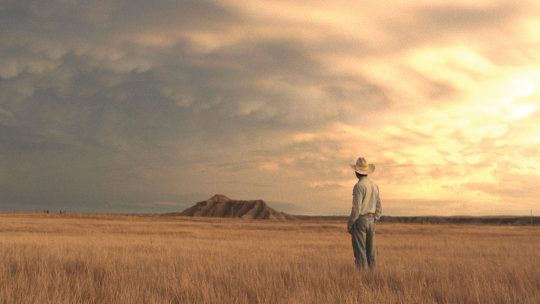
Chloe Zhao’s poetic, contemporary Western packs an abundance of heart-wrenching moments into a film that would stand as an extraordinary achievement even if it wasn’t for its real-life roots. As it is, this is more than just a film.
Although a slightly altered re-telling, the story of the Jandreau family and those who make up their social circle is brought to the screen by the real life figures in question. Zhao uses South Dakota’s largely untouched natural beauty as the canvas for this tale of struggle, and the search for purpose that unfolds from there isn’t easily forgotten.
16. You Were Never Really Here (Lynne Ramsay)
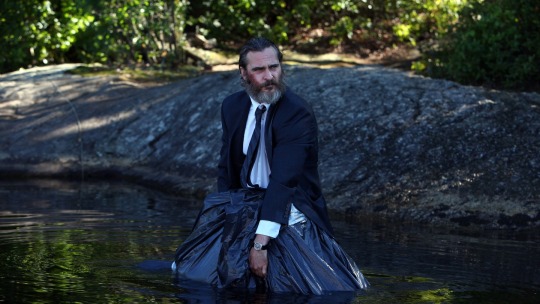
I’d be lying if I said that I liked You Were Never Really Here, which makes it something of a black sheep on a list of films that I otherwise loved across the course of the last 12 months. Some films aren’t supposed to be loved, though, and as Lynne Ramsay’s Taxi Driver-esque fable continues to rattle around my brain all these months later, I’ve come to appreciate it immensely.
This is a deeply unsettling film, but considering the subject matter, that’s exactly what it should be. Ramsay has delivered a film that showcases her masterful control of a very specific mood, and boosted by a stellar performance from Joaquin Phoenix, and Jonny Greenwood’s jolting score, it equated to one of the most memorable movies of the year.
15. Columbus - (Kogonada)
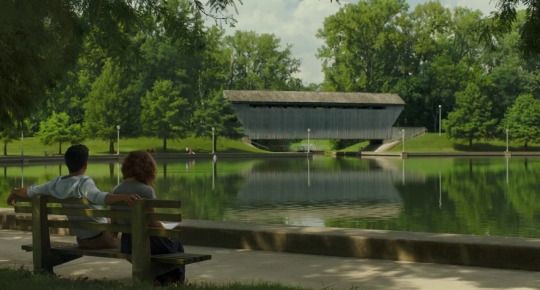
Swathes of cinephiles worldwide were already familiar with Kogonada’s cinematic tastes and sensibilities, thanks to his phenomenal video essays, but that didn’t make his feature directorial debut any less intriguing. In Columbus, Kogonada produced a film as considered as the architecture its characters swoon over.
There’s a stillness and a quiet to the film’s style and story structure, yet that doesn’t equate to a lack of heart or character depth. Haley Lu Richardson and John Cho’s sensational performances anchor the stunning visuals, ensuring their director’s own visual architecture never becomes something prosaic enough to overlook or simply pass by. This is close to as confident and assured as debut films can be.
14. Isle of Dogs - (Wes Anderson)

There’s no getting away from Wes Anderson’s particular tastes, tendencies and flourishes at this point in his career, and as a result, his work remains divisive. Having said that, as Anderson demonstrated in Fantastic Mr. Fox, animation offers an ideal medium for his ever exacting frame and the detail that populates his films. The result in this case is a visually stunning film with a wide range of charms, and something that’s undeniably its own thing in spite of the overt references to Akira Kurosawa and other Asian masters.
Beyond all of its artifice, Isle of Dogs possesses the kind of heart that critics often mourn the absence of in Anderson’s cinema. Anderson’s usual troupe of contributors also provide a fantastic voice cast, with the performances of Brian Cranston, Edward Norton, Bob Balaban, Bill Murray and Jeff Goldblum particularly lively as the film’s leading canines.
13. The Zen Diaries of Garry Shandling - (Judd Apatow)

Documentary portraits of famous figures don’t get much more complete or, indeed, interesting as Judd Apatow’s four-and-a-half hour love letter to the late Garry Shandling. Make no mistake, Apatow’s admiration for and closeness to his subject’s work is clearly evident throughout the film.
In spite of that, the film also manages to offer a look behind the curtain into Shandling’s personal life, and offer up an account of the toll that comedy and television can ultimately take on an individual. The film aligns itself with Shandling’s own clearly reflective instincts, and offers up a measured tribute which gives way to both laughs and tears.
12. The Miseducation of Cameron Post - (Desiree Akhavan)
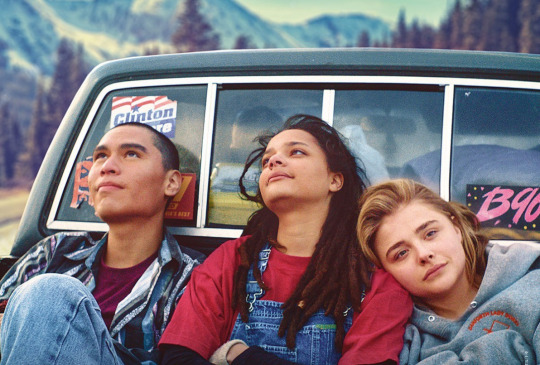
Desiree Akhavan’s second feature offers up a beautifully efficient and affecting exploration of burgeoning sexuality, and the struggles of wider society in coming to terms with that journey of sexual identity. In a year when multiple films took on a similar shape in exploring the archaic notion of gay conversion therapy centres (and on a very different subject but with a frequently similar shape, the restrictive setting of rehab facilities for addicted youth), Akhavan’s film is directed with a grace and subtlety that elevates it far beyond its contemporaries.
Chloe Grace Moretz and Sasha Lane enhance their deserved reputations as young, emerging superstars in a film that’s incredibly well-written, yet avoids the urge to rely solely on lengthy, overacted soliloquies. Instead, this is cinema as it should be. Trusting in the visual nature of the medium, Akhavan’s film is filled with lingering glances and shots, all of which reveal something about the characters and provoke further contemplation on the movie’s ever-important subject matter.
11. Widows - (Steve McQueen)

Steve McQueen’s background as a Turner Prize winning artist translated to a great sense of precision in his first three films. All three of those features, in some form or another, explored what happens when physicality is pushed to its limits, yet in Widows that same theme took on an even grittier quality when married with the conventions of heist films. A move into genre was undeniably a bold step for a filmmaker of McQueen’s style and growing reputation, but then again when he’s capable of playing with generic norms as impressively as he does in this case, it would have been a waste not to explore those possibilities.
Widows stands as a rich text layered with thoughtful assertions on class, race and gender roles, but that doesn’t detract from this story’s potential as pure entertainment either. With one of the casts of the year, the performances are exceptional across the board -- although Daniel Kaluuya’s work still stands out as one of the very best supporting turns of 2018 -- while McQueen’s inherent creativity is on display for all to see as he transforms a brief and simple car journey into one of the year’s most impressive, insightful and memorable shots.
10. Shoplifters - (Hirokazu Kore-eda)

Hirokazu Kore-eda’s tale of unconventional family on the social margins of Tokyo contains all of the trappings and warmth of Ozu’s best work, yet accompanies it with a distinctly modern and sharp edge that increases both its relevance and resonance. Deeply affecting throughout, Shoplifters highlights the often absurd nature of self-placed social constructs and norms, as just one element of a story that’s already wildly compelling, touching and urgent on its surface.
The question of nature versus nurture is very much alive and at work in Kore-eda’s film, but in a nuanced fashion that is perhaps even more interested in how society and class serve, and fail to serve, certain demographics as a whole. What’s best for us, and what can ultimately be most damaging, may be impossible to pinpoint until it’s often too late, and Kore-eda’s film is only too happy to conclude with that unknown sweeping over the audience.
9. First Man - (Damien Chazelle)
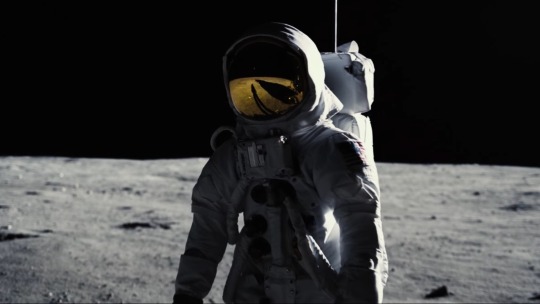
The very same elements that have led to much of the criticism of Damien Chazelle’s La La Land follow-up, will almost certainly prove to be the same reasons it will be afforded much deserved respect and acclaim in time. A very literal nuts and bolts re-telling of mankind’s greatest achievement, First Man is not all that interested in back-slapping or myth-building. It might be easier for many to imagine Neil Armstrong as an exuberant and deeply satisfied man, but his life was more complicated than that, and as such Ryan Gosling’s much-discussed, muted portrayal likely hit on the appropriate tone. Likewise, it would be nice to preserve a fairy tale image of NASA’s untouchable geniuses, but the film and the real life story is all the more interesting for wallowing in the toil, and incredible sacrifices of life, that were a part of man’s journey to the moon.
Having persevered through the quiet, rooted inner-workings and heartbreak that built up to the moon landing, Chazelle treats the audience to arguably the most spectacular moon sequence ever captured on film. The film ends having gifted a sense of wonder for Armstrong and his colleagues’ achievements, but understands the endless failures were just as central to that singular moment. Unlike much of Chazelle’s previous work, this film is not prepared to merely bow down to a narrative of genius.
8. Private Life - (Tamara Jenkins)
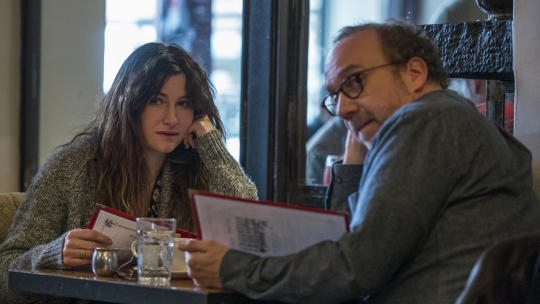
A masterclass in performance and writing from start to finish, Tamara Jenkins’ long overdue return to directing balances divergent tones throughout in a film that is jam-packed with humanity. Telling the story of a couple desperately trying everything within their power to have a child, Jenkins’ film runs through the full gamut of emotions, although it’s more than comfortable in spending prolonged spells on the extremes of uproariously hilarious and heartbreakingly crushing.
Kathryn Hahn and Paul Giamatti anchor the drama with great warmth and a genuinely believable love, while the supporting performances on the margins jump off the screen to provide no doubt as to the authenticity of this world. Private Life is the kind of intelligent and instantly relatable every day drama that rarely makes its way to the big screen any more. It’s also perhaps the strongest evidence in a long time for why cinema should be eager for these stories not to be consigned to the realm of TV drama.
7. Burning - (Lee Chang-dong)
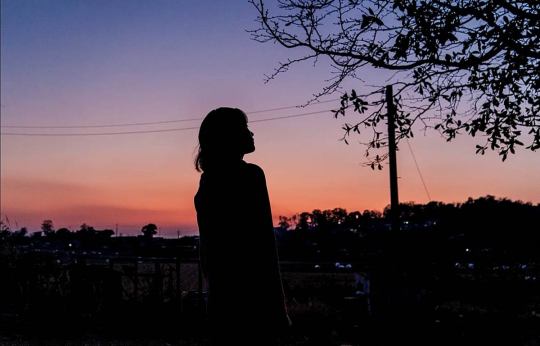
Burning is a mystery in every sense of the word. As a result, it arguably offers the purest dose of suspense that’s been seen on the big screen in quite some time. A sense of unease arises early in the film and only becomes more and more smothering as the action progresses. The lines are entirely blurred between the innocuous and ominous, and even by the film’s dramatic conclusion, for many they’ll remain equally unresolved.
In part, that’s the magic of Burning. It’s a film that not only drags the audience along with it on its journey, but displays a remarkable sense of confidence and control in doing so. The three leading performances in the film are spectacular, but Steven Yeun, in particular, is a revelation. Yeun’s Ben may be an incredibly sinister and manipulative villain, but it’s not a stretch to imagine his Gatsby-like figure being exactly who he presents himself as too. The film must be considered through the prism of the literary aspirations of its protagonist, Jong-su, and that creates valid suspicion. Regardless, Burning is an exquisitely crafted psychological drama and examination of social status along the Korean border, with equally stunning visuals to match.
6. Cold War - (Pawel Pawlikowski)

Inspired by his own parents’ love story, Pawel Pawlikowski took the intimate framing and crisp black and white of his Academy Award winning Ida, and applied it beautifully to a sweeping, European romance. Such is the power of cinema that Cold War feels truly epic. That’s all the more impressive considering it’s a deeply personal story captured in close quarters, which also zips in at a notably punchy 85-minute run time.
Combined with Lukasz Zal’s phenomenal cinematography, it’s clear that Pawlikowski has crafted a winning style. Still, the story is essential in providing the substance and, in this case, it’s thoroughly engrossing. Joanna Kulig is truly magnetic as the single-minded and enigmatic Zula, while Tomasz Kot carries himself with the effortless charisma and dignity of the archetypal, classic leading man as he embodies Wiktor. Every frame in the film would look at home in an art gallery, and yet Cold War carries memorable moments of substance beyond its aesthetic pleasures. Just as important to mention is the fact I never knew I needed Eastern European folk music in my life, and then this film’s enchanting songs took up permanent residence in my head.
5. Roma - (Alfonso Cuaron)

A true cinematic master, Alfonso Cuaron combined the bracing humanity of Y Tu Mamá También with the technical mastery of Children of Men to produce the most personal film of his career. In that regard, Roma may well live on to be viewed as Cuaron’s truly definitive work. This film captures the spirit that infuses his wider filmography with so much exuberance and life, while telling a story that has so much resonance in its own right.
A tribute to the childhood maid that raised him, Roma shines a light on the struggles of indigenous Mexican people, and the class and cultural divides that have long existed in Mexico City. Driven by an outstanding, naturalistic performance from first-time actress Yalitza Aparicio as Cleo, the film’s deliberate pacing provides the audience with the truest sense of the world in which its set, and the routines of its protagonist. Of course, it does this in a fashion which few other living filmmakers could dream of replicating. Cuaron’s camerawork is out of this world, particularly in the film’s two main set pieces, but just as relevant to the discussion that surrounded its Netflix release was the remarkably immersive sound design. I was lucky enough to catch Roma on the big screen, and there’s no doubt that it made the film an even greater cinematic spectacle. Having said that, the emotion at the heart of the film is deeply affecting, and it will therefore connect on screens of all shapes and sizes for decades to come.
4. If Beale Street Could Talk - (Barry Jenkins)
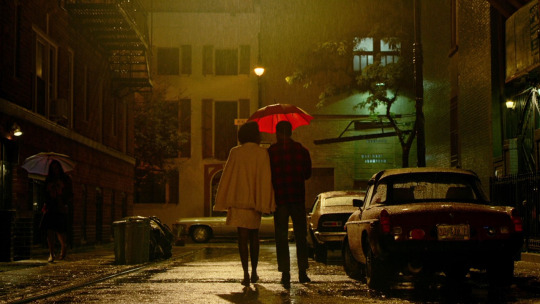
If Beale Street Could Talk is not only Barry Jenkins’ first film since his Oscar win for Moonlight, but it’s also the first English-language adaptation of a James Baldwin work. Combined, those elements make for an enormous weight of pressure and expectation, and yet Jenkins was more than up to the challenge of delivering beyond even the loftiest of expectations. Much like Moonlight, this is a perfect match of filmmaker and subject matter. Jenkins is undeniably ascending toward the status of being the premier cinematic chronicler of the African American experience. It’s particularly vital for that specific lens to his work to never be overlooked, either, as it gets right to the heart of the essential truths of his films.
Still, it all derives from a deeper understanding of emotion, society and relationships that ensure Jenkins’ cinema is also imbued with a layer of universality. Jenkins is a filmmaker of great empathy, and his collaborations with cinematographer James Laxton have seen him develop into the modern master of the close-up. Faces have rarely looked as rich and expressive as they do under Jenkins’ gaze, and it’s likely no coincidence that actors seem to find another gear for their performances under his watch. For this film, those elements all combine for a story rich with romance and tragedy, and one that’s sadly as relevant today as it was when Baldwin published the novel in 1974. To cap things off, Nicholas Britell’s score finds the most extraordinary balance between soaring romance and Herrmann-esque dread to emerge as cinema’s best soundtrack of the year.
3. Leave No Trace - (Debra Granik)
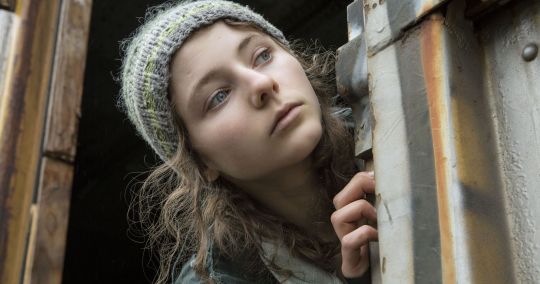
Debra Granik returns with her first feature since Winter’s Bone effectively launched Jennifer Lawrence’s career, and it was undoubtedly worth the wait. A quiet film with an ultimately pointed and heartbreaking message, Leave No Trace affords the leafy green environs of the Pacific Northwest the kind of breathing space society seems so unwilling to offer the film’s father and daughter duo.
Played by Ben Foster and Thomasin McKenzie respectively, there’s an arresting resilience and tenderness to the central relationship of Will and Tom. Living in public parks and deserted woodlands, Will and Tom don’t conform to the cut and dry definitions of family and home that the authorities around them are intent on enforcing upon them. Part of the magic of Granik’s film comes in the way it gradually channels the viewer to see things from their perspective. Why can’t contented people, doing no harm to others, be allowed to live in a manner of their choosing? Of course, the conversation is much more complex of that, and so, as Granik’s film ultimately reveals, is the telling of it in this case. On the whole, Leave No Trace is a truly mesmeric meditation on the impact of trauma, familial love and societal norms. Buoyed by McKenzie, who delivers one of the most astonishing performances of the year, it’s not a film that can be easily forgotten.
2. Minding the Gap - (Bing Liu)

It’s become unsurprisingly fashionable for American cinema to attempt to explain the ascendance of Trump, and the country’s wider social challenges, with on the nose films that offer minimal real depth or insight. Minding the Gap doesn’t fall into those same traps, though, largely because it seems like it never originally had aspirations to be as profound as it ultimately proved to be. As it turns out, simply charting the lives of a group of skateboarding friends over an extended period of time provides a fascinating look into the struggles of youth, and the baggage of history and circumstance, in small, forgotten towns.
Directed by Bing Liu, one of the aforementioned skateboarders, Minding the Gap’s subject matter ultimately proves to be remarkably complex and far-reaching for a 93-minute documentary set on the streets and in the homes of Rockford, Illinois. The young men’s interconnected lives ultimately give way to a shared history of previously undiscussed struggles. Among the young men’s commonalities are exposure to domestic abuse, experiences shaped by race, immense financial struggle, the confusion of modern masculinity, and, of course, a passion for skateboarding. There’s certainly some optimism to be found here, but there’s also an overwhelming sense of sadness for how these young men have been shaped by past acts and histories that were always beyond their control. If you wanted to even try to explain America in 2019, understanding those challenges would be essential. In truth, though, the same difficulties could be applied, and used as explainers for social issues, across the wider Western world. This is a deeply human story and, I’d argue, the year’s most touching film.
1. First Reformed - (Paul Schrader)
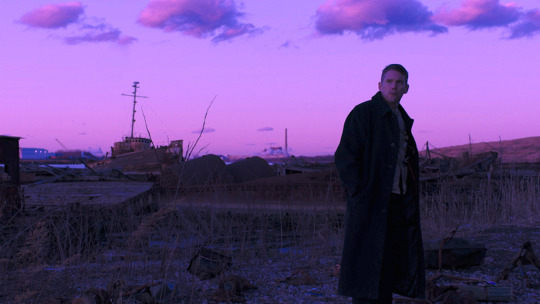
I’m not sure how many people were expecting it, but at 72-years-old, Paul Schrader remains one of cinema’s most vital and striking voices. With a deep well of cinematic knowledge to draw from, First Reformed sees Schrader borrow liberally from many of the form’s great masters, while still crafting an incredible story that is undeniably spoken in his own abrasive tone. Bergman’s Winter Light, Dreyer’s Ordet and Bresson’s Diary of a Country Priest are blatantly obvious inspirations, but the voice of Taxi Driver’s Travis Bickle, Schrader’s own most famous creation, is equally present in the character of Reverend Ernst Toller.
Toller is played masterfully by Ethan Hawke in the best performance of what’s already been a rich and fascinating career. A clearly measured and reasonable man, Toller’s journey ultimately brings him to breaking point as those around him ignore his message in the same way that he attempts to turn a blind eye to his ailing health. Schrader’s writing tackles global warming, and the prospect of impending doom that accompanies it, in the kind of blunt and unflinching terms that should now be unavoidable but tragically remains all too rare. By the same token, as Toller begs for consideration of whether God can forgive for the damage done to the earth, his preachings fall on the deaf ears of an immensely selfish world. In Schrader’s mind, there’s no question that drastic times call for drastic measures.
Even with such an urgent message, a fantastic script, and a generational lead performance, First Reformed wouldn’t be as great as it is without its stunning array of visuals. The film’s visual treats range from extreme close-ups that make a map out of Hawke’s wrinkled forehead, to the electric and lustrous pink of Toller’s heartburn medicine as it mixes with his whiskey, and to the vivid anger of the early morning sky. Quite simply, it’s a feast for the eyes, a jolt for the mind, and an assault on the soul.
#film#movies#cinema#oscars#first reformed#minding the gap#leave no trace#if beale street could talk#roma#cold war#burning#first man#shoplifters#private life#widows#the miseducation of cameron post#the zen diaries of garry shandling#isle of dogs#columbus#you were never really here#the rider#lean on pete#happy new year colin burstead#a star is born
1 note
·
View note
Text
Milking the Hippogriff Dry as the Hogwarts Express Gravy Train Runs Out of Steam:
Why Warner Bros. are Wrong to Turn Harry Potter and the Deathly Hallows into Two Films
By MaraudingDon
On March 13th 2008, Warner Bros. confirmed1 rumours that had been circulating for a number of months that they would indeed be splitting the seventh film in the Harry Potter franchise, Harry Potter and the Deathly Hallows, into two parts. This essay will set out reasons why this long-time, self-confessed Harry Potter uberfan is appalled by this decision.
The Harry Potter films have been overwhelmingly successful. According to IMDb,2all five previously released films occupy spots in the top twenty-one grossing films of all time. Three of them are in the top ten. Harry Potter and the Philosophers Stone(Sorcerer's Stone if you are not British) is the highest placed with $968 million+ box office takings, and even Harry Potter and the Prisoner of Azkaban at number twenty-one took a very respectable $789+ million at the box office.
This is the cash cow, or for the purpose of this essay, the cash hippogriff, that has served Warner Bros. very nicely indeed, thank you very much.
Unfortunately, the cash hippogriff is about to milk its last drop, because with the Harry Potter and the Deathly Hallows film, this lucrative film franchise runs out. The cogs in the WB machine must have squealed louder than Dobby when they read the final book and realised that Lord Voldemort had eight portions of soul, instead of seven. "Let's do the same with the film' squealed delighted film bosses as they got ready to count their galleons in the Lightning Struck counting tower ’ and so instead of seven films to match seven books, we get eight films.
Now at the start of this, I must confess that I am not a fan of Harry Potter and the Deathly Hallows. In July 2007, just before the release of the novel, Jo Rowling told ITV News3 that "Some people will loathe it. For some people to love it, other people must loath it. That's just in the nature of the plot." Well she was spot on, because even though I have read the book five times now, I still loathe it as much as I did that first time. However, as someone who has huge respect for what Jo Rowling has achieved, it is still important to me that Warner Bros. does justice to this amazing world and does not abuse their position as holders of the copyright and trademarks. In fact, a well executed film could provide me, and others who did not like the book, a new appreciation of it in the same way the excellent Harry Potter and the Order of the Phoenix film did for many.
What made Harry Potter work for me, what made me fall in love with this excellent series (and despite my loathing of the final book, I still regard the first six as works of genius), was her excellent characterization. J.K. Rowling succeeded where so many other authors have failed by creating peripheral characters that a reader could truly care about. Adult characters like Remus Lupin, Minerva McGonagall, Molly and Arthur Weasley, and the younger characters like Luna, Neville and the Weasleys. Even the traditional baddies like Bellatrix were utterly fascinating to read about ’ and was there ever a greater literary character than Severus Snape? For six books he created more heated debate than any of the other Harry Potter characters put together. So herein lies my first problem with a two part Deathly Hallows film ’ in the first part, you aren't even going to see half of these characters. If Steve Kloves adheres religiously to the book, then we may be lucky to get a quick glimpse of Severus at the very beginning, but then that's it until part two. No Hogwarts, no teachers, NO NEVILLE! The heart and soul immediately disappears.
Do people realize when they welcome a two part film, just how much of the trio we are going to get? If the film is split at the "Silver Doe" chapter4 for example, then we may get to see Voldemort and his Death Eaters opening the film, a rather anti-climactic goodbye to the Dursleys, "The Seven Potters" with a big chase and fight scene, the deaths of Hedwig and Mad-Eye, a wedding, and the rest will be Harry, Ron and Hermione. Yes there will be scenes involving the locket hunt at the Ministry and a visit to Godric's Hollow, but are Daniel Radcliffe, Rupert Grint and Emma Watson strong enough to hold a film of this magnitude? I don't think so. There is no doubt that all three of them have improved as they have made that difficult transition from child actor to adult ’ Daniel especially has improved ten-fold since those awkward first films, but several hours of Emma's hypnotic dancing eyebrows is not enough to hold my attention. It is worth remembering that nearly all the action in this book takes place in the last third of the text, including a fantastic battle segment at Hogwarts, the resolution to the Snape storyline, and of course, the denouement to the entire series. The casting directors of the Harry Potter films have done an outstanding job in casting the very best of British stage and screen in these movies. We've been lucky enough to see Richard Harris, Sir Michael Gambon, Dame Maggie Smith, Alan Rickman, Fiona Shaw, Gary Oldman, David Thewlis and many more award winning stars grace our screens together. What a tragic disappointment then to have a Deathly Hallows part one in which we may not even see these greats at all, or in tiny dribs and drabs. Those who don't like the book often mention the camping. Those who love the book often moan at those who moan about the camping! But there is no getting away from it that part one of this two-part film is going to consist of a lot of the trio arguing whilst either planning their camping or actually doing it.
So let's move away from camping and talk about money ’ because money talks. Films like Titanic and the amazing Lord of the Rings trilogy took enormous box office takings, not because of the amount of people who went to see the films, but because of the amount of repeat viewings. It's why the Harry Potter franchise has been so successful ’ families and non-fans will only take box office receipts so high, it is the super fans who see the films three, four, five, even twenty times each that create such huge box office receipts. The Harry Potter and the Order of the Phoenix film took $937+ million at the box office. A tiny, miniscule percentage of that was my viewing it five times, I loved it, couldn't get enough of it. Will I go and watch Deathly Hallows part one five times? Not in a million years, and I highly doubt others will either.
I've put it off too long ’ I now find myself having to write about He-Who-Must-Not-Be-Allowed-To-Write-The-Screenplay, a.k.a. Steve Kloves. (Here I offer an apology and a blindfold to my friend, fellow longtime Leaky stalwart and Kloves fan Bandersnatch) but does the thought of a five hour two-part film penned by Mr. Kloves make anybody else want to jump through the veil themselves?!! Lest we forget, this is the man who in the Prisoner of Azkaban film managed to turn Ron Weasley into the cowardly lion, and Hermione Granger into the Bionic Woman! Be honest, is this the man you Snapeophiles trust with doing justice to your hero? Personally, I'm waiting for Lord Voldemort to cackle, "I'll get you my pretty, and your little dog too."
I just find it unfathomable to understand why Warner Bros. has been so averse to creating one film that is say, three and a half hours long. That is more than sufficient to do justice to the book. History shows that cinema audiences are more than happy to sit time and time again through long films; the examples of Titanic and Return of the King back this up. Titanic had a run time of 194 minutes,5 whilst Return of the King numbed our derrieres for 201 minutes,6 yet still we flocked to see them, making them the highest grossing films of all time.
Instead we are faced with getting two films, six months apart. According to the press release, part one will reach us in November 2010 and part two in May 2011. The first is two years after the Harry Potter and the Half-Blood Prince film and part two will reach us nearly four years after the release of the book. Again, I feel Warner Bros. has misjudged its audience. The super-fans are slowly losing their fervor for all things Potter, the fandom is slowing down. If part one is judged to be a failure, will the "normal" audience, those who are not super fans, even bother going back to watch part two? The denouement to the Deathly Hallows book is dominated by a fantastic battle scene that is covered in more than one hundred pages of nail biting prose. I can understand the producers perhaps believing that they could not do justice to this battle in one film (in addition to everything else they may want to create), but my argument is that they absolutely could do it all in one film, and do it well. Let's look at the examples of the Lord of the Rings trilogy again. The Lord of the Rings: The Two Towers was dominated by a battle at Helm's Deep and, led by Peter Jackson, the film version of the novel was exquisite. Even better was the battle for Gondor in Lord of the Rings: The Return of the King, a battle that easily overshadows the Battle of Hogwarts. If New Line Cinema and Peter Jackson could do it ’ why not Warner Bros. and David Yates? One longer film instead of two shorter ones will keep the dramatic tension flowing to great effect.
Back to money again. Once the films have sizzled or sunk at the box office, we then get the DVDs. I would be interested to hear what Warner Bros. have to say about this. Are we, as most anticipate, going to have to pay for two DVDs for one story? Instead of the usual $30 here in Australia, will I have to pay $60? There is no question of an uberfan like me not getting them, of course I have to and WB knows this. I have a nasty taste in my mouth that could be shampoo ¦ no, it's bubotuber pus ¦ no, it's the taste of being ripped off.
I'm sorry Mr. Heyman, you may be as gorgeous as Fleur Weasley, but this decision screams out, "money, money, money." The Hogwarts Express gravy train is on its last journey and you appear to be clinging on by your fingertips. Time will tell whether this is a decision you come to rue.
Notes
1. Business Wire, "Warner Bros. Plans Two-Part Film Adaptation' paragraph 1.
2. IMDb, "All-Time Worldwide Box office."
3. Oatts, "Rowling: Some will loathe it' paragraph 2.
4. Rowling, Deathly Hallows, 296’314.
5. IMDb, "Titanic."
6. Ibid., "The Lord of the Rings: The Return of the King."
Bibliography
Business Wire. "Warner Bros. Plans Two-Part Film Adaptation of "Harry Potter and the Deathly Hallows" to Be Directed by David Yates." Business Wire, 13 March 2008, http://www.businesswire.com/portal/site/google/?ndmViewId=news_view&newsId=20080313005332&newsLang=en (accessed 21 April 2008).
The Internet Movie Database (IMDb). "All-Time Worldwide Box office." http://www.imdb.com/boxoffice/alltimegross?region=world-wide (accessed 21 April 2008).
”””. "Titanic." http://www.imdb.com/title/tt0120338/ (accessed 21 April 2008).
”””. "The Lord of the Rings: The Return of the King." http://www.imdb.com/title/tt0167260/ (accessed 21 April 2008).
Oatts, Joanne. "Rowling: Some will loathe it." digital spy, 13 July 2007. http://www.digitalspy.co.uk/tv/a65641/rowling-some-will-loathe-it.html (accessed 21 April 2008).
Rowling, J.K. Harry Potter and the Deathly Hallows, London: Bloomsbury, 2007.
Comments? See below, or
discuss this essay
and
vote for the Readers' Choice Award
on the
Scribbulus forum
.
The Leaky Cauldron - Scribbulus
0 notes
Text
Collated Quotes
Subtopic 1: Is there a clear sense of authorship across Bong’s films?
“The expansive progress of Bong’s filmography through the Host and Snowpiercer has made it very clear that the Korean director has the imagination and technical chops to create a fantasy cinema on a level with anything from the Hollywood mainstream, but a sensibility with no taste for the blockbuster production line’s easy reassurance.”
“The bittersweet finale also flags up the challenges ahead in providing a harvest for the expanding world, so no platitudinous solutions here, just a movie that showcases Bong’s admirable flair for artfully unhinged spectacle, deftly undercut by a chastening reality check that never allows us to enjoy ourselves too much.”
“A repeated image shows the girl leaning into the pig’s floppy ear and whispering to calm her down. We never hear exactly what she’s whispering, but the tight closeups of Okja’s mesmerized eye show us that she’s listening intently and gets the gist—that the girl’s words matter and make sense even though they don’t speak the same language. The pig trusts her friend. All the film’s many threads ultimately come back to questions of trust: what it means to keep it or betray trust, and whether there are circumstances where betrayal is necessary, and whether the trust between human and human is more meaningful than the trust between human and animal. Mija would tell you there’s no difference.”
“He’s also a filmmaker who finds great, unsettling dark comedy in violence, and once again the blood does run, if somewhat less generously than in “The Host” and his often brilliant “Memories of Murder.”
“Mr. Bong’s virtues as a filmmaker, including his snaking storytelling and refusal to overexplain actions and behaviors, can here feel like evasions or indulgences rather than fully thought-out choices. There’s a vagueness to the film that doesn’t feel organic — as if, having created a powerhouse central character, he didn’t exactly know what to do with her. That said, his visual style and the way he mixes eccentric types with the more banal, like a chemist preparing a combustible formula, are often sublime, as is Ms. Kim’s turn as the mother of all nightmarish mothers, a dreadful manifestation of a love so consuming it all but swallows the world.”
“Okja is the Korean director’s most accessible film to global audiences to date, a near masterpiece that bends and twists genres and celebrates childhood even when it goes into some rather dark places along its still consistently childlike adventures.“
“Bong’s movies deny the easy satisfaction of an overarching victory, instead suggesting that you can’t save a world that may have already doomed itself.”
“I have admired Bong Joon-ho’s works for many reasons, and one of them is the unpredictability of his choices. He made me both laugh and cringe in a deadpan black comedy “Barking Dogs Never Bite” (2000), and then he played me like a piano in his great rural-set thriller film “Memories of Murder” (2003), and then he surprised me with monster film “The Host” (2006), and then he came back to another thriller set in the countryside in “Mother” (2009).”
“ …twisting suddenly from horror to pathos to comedy to action and back again… “
“His films are never about straight good versus evil; there’s never a particular heroic sense of triumph to be found. Yet, neither is he a filmmaker who revels in pessimistic brutality. Even in the darkest of moments, there’s always a spark of hope to be found.”
“Even the characters I create, they aren’t clear-cut supervillains or superheroes, they’re all residing in the grey area. Maybe that’s why a certain amount of optimism or pessimism mixes into my films. I do feel, however, that’s more realistic and more reflective of how society is, and how life is. If everything is clear-cut and residing in one direction, it might feel a bit forced.”
“Because Netflix isn’t pursuing a theatrical release in France, the President of the esteemed film festival nearly pulled both Netflix films in competition (Okja and Noah Baumbach‘s The Meyerowitz Stories). Though they screened (and received some of the best reviews from the festival), the Jury held steadfast on the prediction that they would not reward any of the streaming service’s films. Despite this future-of-cinema conversation, the streaming distributor has offered Bong much more creative control than his English-language debut, Snowpiercer, where he had a constant battle with The Weinstein Company over the cut. Indeed, he’s quite pleased with his experience this go-round and that freedom will only make Netflix more enticing for filmmakers.“
“The Host begins with the American company just saying “dump everything down the drain”. This one is behind the scenes but it has very similar effect…it’s all this pageantry around it as if they’re doing something good when really they’re just dumping things down the drain, as well. Were you wanting to explore that idea in a different way?
BONG: This time I want to portray that idea via Tilda, who plays two roles. With Nancy Mirado, like in The Host, I wanted to be very explicit with the violence that she inflicts. Whereas Lucy Mirado, she tries to differ from Nancy. She thinks that she’s more elegant, more eco-friendly; she’s more obsessed with the marketing aspect of it and how it looks on the exterior. Nevertheless, the winner within the Mirando group is Nancy, not Lucy, and I think that reflects my concerns and fears about the reality of multinational companies within capitalist societies. The more ruthless people almost always seem to take over.”
“The traditional studios were a bit skeptical or a bit overly conscious about the radicalness of the script, and they weren’t on board,” he said. “From the get-go, it was guaranteed creative freedom [with Netflix]. They weren’t meddling with any part of the filmmaking whatsoever.”
Subtopic 2: Are Bong’s films personal to him?
“To their credit, the moviemakers signal right away that this isn’t a film that adults can use as an electronic babysitter. The dialogue is liberally peppered with F-words, and the more exaggerated jokes about corporate hypocrisy are reminiscent of non-child friendly satires like “Dr. Strangelove” and “Network” (upon learning that it will take ten years for the pigs to grow, a reporter moans, “Jesus Christ—I’ll be dead by then!”). There are also visual and thematic nods to cartoonist turned director Terry Gilliam, who made films that were childlike and sometimes childish but never strictly for kids—in particular the 1985 anti-fascist fable “Brazil,” which appears to have inspired the derring-do of ALF’s membership, chivalrous rebels who evade police by diving off bridges”
“…Delightful, winning and deliriously wonderful story that unfolds is part E.T., part Bong Joon Ho, part Swiss Army Man (Seriously!), and ultimately one of the year’s most pleasant cinematic surprises.
“The movie’s underlying premise — child bonds with otherworldly beast and defends it from cruel adults — easily calls to mind “E.T.” or “Pete’s Dragon,” but Bong bends the formula into his own agenda.”
“It’s the recombinant offspring of all those science-fiction pictures of the 1950s and ‘60s in which exposure to atomic radiation (often referred to as both “atomic” and “radiation”) or hazardous chemicals (sometimes also radioactive) results in something very large and inhospitable: “Them!” (giant ants), “Tarantula” (giant spider), “Matango: Attack of the Mushroom People” (giant fungi), “The Amazing Colossal Man” (giant bald guy), “The Giant Behemoth” (giant behemoth – both giant and a behemoth, but more precisely a radioactive ocean-dwelling Godzilla clone), “Frankenstein Conquers the World” (giant Frankenstein’s monster atomically regenerated from the beating heart of the original monster after the A-bomb is dropped on Hiroshima), and so on.“
“Joon-Ho Bong implies that media and government are equally incompetent and untrustworthy. When you need saving from the maw of a mutant river beast, you’ve got nowhere to turn but your kin.”
“I think that films aren’t necessarily tools to change the world, a film is just a beautiful thing in itself. However, when someone is experiencing the beauty of a film, that itself is changing the world in some aspect.”
“I don’t expect the entire audience to convert to veganism after watching the film. I don’t have a problem with meat consumption itself, but I do want my audience to consider, at least once, where the food on their plate comes from. And, if one is to do that, I believe the level of meat consumption will gradually decline.”
“The South Korean director’s films, in the cinematic landscape, have never really been considered outright political missives, perhaps only because they hide under the guise of genre film.”
“However, although the super-pig phenomenon may be fiction at the moment, it’s very close to being a reality. In Canada, they already made some kind of GM salmon. It’s already gotten FDA approval. They are starting to very carefully distribute it in the market. In the process of researching the film, I met and interviewed a PhD student who is developing a GM pig. So, Okja is real. It’s actually happening. That’s why I rushed making Okja, because the real product is coming.”
“Even the characters I create, they aren’t clear-cut supervillains or superheroes, they’re all residing in the grey area. Maybe that’s why a certain amount of optimism or pessimism mixes into my films. I do feel, however, that’s more realistic and more reflective of how society is, and how life is. If everything is clear-cut and residing in one direction, it might feel a bit forced.”
“I was always a huge film buff. I was a child of the ’70s, so I didn’t have access to DVDs or VHS growing up. I didn’t go to the movies that often either. In many ways, TV was my cinema. I would open up the TV schedule and see what movies were playing each week. Although I was mostly watching films on TV, I could get through around ten a week. By the time I got to middle school, I was certain that I wanted to become a film director.“
“I majored in sociology in college. I knew that my parents would disapprove of me studying film.”
“For my next film, I’m going to try making what I’ve liked the most ever since I was a kid. So I naturally came up with a crime film, and as I was thinking that I should try and do it in a realistic and Korean-style method rather than imitating American genre films. I thought of the Hwaeseong murders, which I’d heard a lot about since I was young. But when I actually researched data on the Hwaeseong murders, it contained elements that were far more overwhelming and horrific than I had ever imagined.”
“I met with detectives who worked the case, Hwaeseong residents, and reporters from the Gyeongin Ilbo, which was the region’s newspaper.”
“I was very scared. I suffered a lot psychologically. Really, during that time period, I was very deeply absorbed in the murders, enough so that I had delusions that I might capture the real killer in the process of my research. I fell deeply into it emotionally, so I was exhausted as well.”
“I watched a lot of them, things like Se7en and The Silence of the Lambs. And also Imamura Shohei’s Vengeance Is Mine. Not only does that film clearly reveal hysteria in the Japanese society of the time, it has some unidentifiable, incredible strength to it. Of course, the work that influenced Memories of Murder directly was Alan Moore’s graphic novel From Hell. I was a bit disappointed with the Hughes brothers’ film of it.”
Subtopic 3: To what extent has Bong collaborated with the same people time and time again?
“Bong Joon Ho co-writes the film with British author/journalist Jon Ronson, a partnership that perfectly weaves together the director’s marvelous creature sensibilities, as previously experienced in The Host, with Ronson’s ability to convey a Brit-like humor and wit throughout the film that is intelligent, sensitive and, at times, quite darkly hilarious.”
“Zipping along to a vibrant soundtrack, Bong crafts lively, action-packed moments that find the hulkish Okja careening through public spaces while people scramble around her. This includes one of the most striking moments in Bong’s entire career — a slow-mo battle set to John Denver’s “You Fill Up My Senses,” which finds the ALF forming a wall of umbrellas to defend a cornered Okja while Mija cowers nearby.”
“Bong Joon-ho and his co-screenplay writer Kelly Masterson (he previously made an impressive debut with Sidney Lumet’s last work “Before the Devil Knows You’re Dead” (2007)) have made a darkly engaging SF thriller from their source.”
“Tilda Swinton gloriously embraces her despicable character with the attitude of mean British headmistress, and she is fearless as usual in throwing herself into the hammy side of her character.”
“But about the monster. Created by the San Francisco-based FX house, The Orphanage, it is a creature of scary amphibious loveliness, with greenish salamanderlike skin, froggy legs…“
“I first met Plan B a long time ago-2007 in LA-and they suggested a lot of original source material to me. It was a very light relationship. It was right after I was done with my film The Host and Jeremy and Brad Pitt from Plan B were fans. I also really admired their filmography. They do lots of cavalier films such as 12 Years a Slave. So it was a natural mix between Plan B and I. But even before Plan B came on board the casting casting and effects of the film were already packaged nicely through the Korean producers and the American producer, Dooho Choi. Plan B came slightly later on and because they had a good relationship with Netflix via War Machine, they introduced Netflix to the film and they were fully supportive of Okja. It was a very smooth transition all around so I am very happy.”
“The Host begins with the American company just saying “dump everything down the drain”. This one is behind the scenes but it has very similar effect…it’s all this pageantry around it as if they’re doing something good when really they’re just dumping things down the drain, as well. Were you wanting to explore that idea in a different way?
BONG: This time I want to portray that idea via Tilda, who plays two roles. With Nancy Mirado, like in The Host, I wanted to be very explicit with the violence that she inflicts. Whereas Lucy Mirado, she tries to differ from Nancy. She thinks that she’s more elegant, more eco-friendly; she’s more obsessed with the marketing aspect of it and how it looks on the exterior. Nevertheless, the winner within the Mirando group is Nancy, not Lucy, and I think that reflects my concerns and fears about the reality of multinational companies within capitalist societies. The more ruthless people almost always seem to take over.”
“After what we went through on the last one, it was very important to start the process knowing that we had control,” producer Dooho Choi said after a press event in Cannes on Sunday. “That was most appealing aspect of it — knowing that he could play, and that someone would not be looking over his shoulder constantly. It was a pretty smooth process in that regard.”
0 notes
Text
Summer 2020′s Movies - My Top Ten Favourite Films (Part 2)
10. BODY CAM – in the face of the current pandemic, viral outbreak cinema has become worryingly prescient lately, but as COVID led to civil unrest there were a couple of films in this summer that REALLY seemed to me to put their finger on the pulse of another particularly shitty zeitgeist. Admittedly this one highlights a problem that’s been around for a good while, but it came along at just the right time to gain particularly strong resonance, filtering its message into the most reliable form of allegorical social commentary – horror. The vengeful ghost trope has become pretty familiar over the past decade or so, but by marrying it with the corrupt cop thriller veteran horror screenwriter Nicholas McCarthy (The Pact) has given it a nice fresh spin, and the end result was, for me, a real winner. Mary J. Blige plays troubled LAPD cop Renee Lomito-Smith, back on the beat after an extended hiatus following a particularly harrowing incident, just as fellow officers from her own precinct begin to die violent deaths under mysterious circumstances, and the only clues are weird, haunting camera footage that only Renee and her new partner, rookie Danny Holledge (Paper Towns and Death Note’s Natt Wolff), manage to see before it inexplicable wipes itself. Something supernatural is stalking the City of Angels at night, and it’s got a serious grudge against local cops as the increasingly disturbing investigation slowly brings an act of horrific police brutality to light, until Renee no longer knows who in her department she can trust. This is one of the most insidious scare-fests I’ve enjoyed so far this year, sophomore director Malik Vitthal (Imperial Dreams) weaving an effective atmosphere of pregnant dread and wire-taut suspense while delivering some impressively hair-raising shocks (the stunning minimart sequence is the film’s undeniable highlight), while the ghostly threat is cleverly thought-out and skilfully brought to “life”. Blige delivers another top-drawer performance, giving Renee a winning combination of wounded fragility and steely resolve that makes for a particularly compelling hero, while Wolff invests Danny with skittish uncertainty and vulnerability in one of his strongest performances to date, and Dexter star David Zayas brings interesting moral complexity to the role of their put-upon superior, Sergeant Kesper. In these times of heightened social awareness, when the police’s star has become particularly tarnished as unnecessary force, racial profiling and cover-ups have become major hot-button topics, the power and relevance of this particular slice of horror cinema cannot be denied.
9. BLOOD QUANTUM – it certainly has been a great year for horror, and for most of the summer this was the genre leader, a compellingly fresh take on the zombie outbreak genre with a killer hook. Canadian writer-director Jeff Barnaby (Rhymes for Young Ghouls) has always clung close to his Native American roots, and he brings strong social relevance to the intriguing early 80s Canadian setting as a really nasty zombie virus wreaks havoc in the Red Crow Indian Reservation and its neighbouring town. It soon becomes clear, however, that members of the local tribe are immune to the infection, a revelation with far-reaching consequences as the outbreak rages unchecked and society begins to crumble. Barnaby pulls off some impressive world-building and creates a compellingly grungy post-apocalyptic vibe as the story progresses, while the zombies themselves are a visceral, scuzzy bunch, and there’s plenty of cracking set-pieces and suitably full-blooded kills to keep the gore-hounds happy, while the horror has real intelligence behind it, the script posing interesting questions and delivering some uncomfortable answers. The characters, meanwhile, are a well-drawn, complex bunch, no black-and-white saviours among them, any one of them capable of some pretty inhuman horrors when the chips are down, and the cast, an interesting mix of seasoned talent and unknowns, all excel in their roles – Michale Greyeyes (Fear the Walking Dead) and Forrest Goodluck (The Revenant) are the closest things the film has to real heroes, the former a fallible everyman as Traylor, the small-town sheriff who’s just trying to do right by his family, the latter unsure of himself as his son, put-upon teenage father-to-be Joseph; meanwhile, Olivia Scriven is tough but vulnerable as his pregnant white girlfriend Charlie, Stonehorse Lone Goeman is a grizzled badass as tough-as-nails tribal elder Gisigu, and Kiowa Gordon (probably best known for playing a werewolf in the Twilight movies) really goes to the dark side as Joseph’s delinquent half-brother Lysol, while there’s a memorably subtle turn from Dead Man’s Gary Farmer as unpredictable loner Moon. This is definitely one of the year’s darkest films – by and large playing the horror straight, it tightens the screws as the situation grows steadily worse, and almost makes a virtue of wallowing in its hopeless tone – but there’s a fatalistic charm to all the bleakness, even in the downbeat yet tentatively hopeful climax, while it’s hard to deny the ruthless efficiency of the violence on display. This certainly isn’t a horror movie for everyone, but those with a strong stomach and relatively hard heart will find much to enjoy here. Jeff Barnaby is definitely gonna be one to watch in the future …
8. PALM SPRINGS – the summer’s comedy highlight kind of snuck in under the radar, becoming something of an on-demand secret weapon with all the cinemas closed, and it definitely deserves its swiftly growing cult status. You certainly can’t possibly believe it’s the feature debut of director Max Barbakow, who shows the kind of sharp-witted, steady-handed control of his craft that’s usually the province of far more experienced talents … then again, much of the credit must surely go to seasoned TV comedy writer Andy Siara (Lodge 49), for whom this has been a real labour of love he’s been tending since his film student days. Certainly all that care, nurture and attention to detail is up there on the screen, the exceptional script singing its irresistible siren song from the start and providing fertile ground for its promising new director to spread his own creative wings. The premise may be instantly familiar – playing like a latter-day Saturday Night Live take on Groundhog Day (Siara admits it was a major influence), it follows the misadventures of Sarah (How I Met Your Mother’s Cristin Miliota), the black sheep maid of honour at her sweet little sister Tala’s (Riverdale’s Camila Mendes) wedding to seemingly perfect hunk Abe (Supergirl’s Superman, Tyler Hoechlin), as she finds herself repeating the same high-stress day over and over again after being trapped in a mysterious cosmic time-loop along with slacker misanthrope Nyles (Brooklyn Nine Nine megastar Andy Samberg), who’s been stuck in this same situation for MUCH longer – but in Barbakow and Siara’s hands it feels fresh and intriguing, and goes in some surprising new directions before the well-worn central premise can outstay its welcome. It certainly doesn’t hurt that the cast are uniformly excellent – Miliota is certainly the pounding emotional heart of the film, effortlessly lovable as she flounders against her lot, then learns to accept the unique possibilities it presents, before finally resolving to find a way out, while Samberg has rarely been THIS GOOD, truly endearing in his sardonic apathy as it becomes clear he’s been stuck like this for CENTURIES, and they make an enjoyably fiery couple with snipey chemistry to burn; meanwhile there’s top-notch support from Mendes and Hoechlin, The OC’s Peter Gallagher as Sarah and Tala’s straight-laced father, the ever-reliable Dale Dickey, a thoroughly adorable turn from Jena Freidman and, most notably, a full-blooded scene-stealing performance from the mighty J.K. Simmonds as Roy, Nyles’ nemesis, who he inadvertently trapped in the loop before Sarah and is, understandably, none too happy about it. This really is an absolute laugh-riot, today’s more post-modern sense of humour allowing the central pair (and their occasional enemy) to indulge in even more extreme consequence-free craziness than Bill Murray ever got away with back in the day, but like all the best comedies there’s also a strong emotional foundation under the humour, leading us to really care about these people and what happens to them, while the story throws moments of true heartfelt power at us, particularly in the deeply cathartic climax. Ultimately this was one of the summer’s biggest surprises, a solid gold gem that I can’t recommend enough.
7. THE LAST DAYS OF AMERICAN CRIME – the summer’s other heavyweight Zeitgeist fondler is a deeply satirical chunk of speculative dystopian sci-fi clearly intended as a cinematic indictment of Trump’s broken America, but it became far more potent and prescient in these … ahem … troubled times. Adapted by screenwriter Karl Gadjusek (Oblivion, Stranger Things, The King’s Man) from the graphic novel by Rick Remender and Greg Tocchini for underrated schlock-action cinema director Olivier Megaton (Transporter 3, Colombiana, the last two Taken films), this Netflix original feature seemed like a fun way to kill a cinema-deprived Saturday night in the middle of the Lockdown, but ultimately proved to have a lot more substance than expected. It’s powered by an intriguing premise – in a nearly lawless 2024, the US government is one week away from implementing a nationwide synaptic blocker signal called the API (American Peace Initiative) which will prevent the public from being able to commit any kind of crime – and focuses on a strikingly colourful bunch of outlaw antiheroes with an audacious agenda – prodigious Detroit bank robber Bricke (Édgar Ramiréz) is enlisted by Kevin Cash (Funny Games and Hannibal’s Michael Carmen Pitt), a wayward scion of local crime family the Dumois, and his hacker fiancée Shelby Dupree (Material Girl’s Anna Brewster) to pull off what’s destined to be the last great crime in American history, a daring raid on the night of the signal to steal over a billion dollars from the Motor City’s “money factory” and then escape across the border into Canada. From this deceptively simple premise a sprawling action epic was born, carried along by a razor sharp, twisty script and Megaton’s typically hyperbolic, showy auteur directing style and significant skill at crafting thrillingly explosive set-pieces, while the cast consistently deliver quality performances. Ramiréz has long been one of those actors I really love to watch, a gruff, quietly intense alpha male whose subtle understatement hides deep reserves of emotional intensity, while Dupree takes a character who could have been a thinly-drawn femme fetale and invests her with strong personal drive and steely resolve, and there’s strong support from Neil Blomkampf regulars Sharlto Copley and Brandon Auret as, respectively, emasculated beat cop Sawyer and brutal Mob enforcer Lonnie French, as well as a nearly unrecognisable Patrick Bergin as local kingpin (and Kevin’s father) Rossi Dumois; the film is roundly stolen, however, by Pitt, a phenomenal actor I’ve always thought we just don’t see enough of, here portraying a spectacularly sleazy, unpredictable force of nature who clearly has his own dark agenda, but whom we ultimately can’t help rooting for even as he stabs us in the back. This is a cracking film, a dark and dangerous thriller of rare style and compulsive verve that I happily consider to be Megaton’s best film to date BY FAR – needless to say it was a major hit for Netflix when it dropped, clearly resonating with its audience given what’s STILL going on in the real world, and while it may have been roundly panned in reviews I think, like some of the platform’s other more glossy Original hits (Bright springs to mind), it’s destined for a major critical reappraisal and inevitable cult status before too long …
6. HAMILTON – arriving just as Black Lives Matter reached fever-pitch levels, this feature presentation of the runaway Broadway musical smash-hit could not have been better timed. Shot over three nights during the show’s 2016 run with the original cast and cut together with specially created “setup shots”, it’s an immersive experience that at once puts you right in amongst the audience (at times almost a character themselves, never seen but DEFINITELY heard) but also lets you experience the action up close. And what action – it’s an incredible show, a thoroughly fascinating piece of work that reads like something very staid and proper on paper (an all-encompassing biographical account of the life and times of American Founding Father Alexander Hamilton) but, in execution, becomes something very different and EXTREMELY vital. The execution certainly couldn’t be further from the usual period biopic fare this kind of historical subject matter usually gets (although in the face of recent top-notch revisionist takes like Marie Antoinette, The Great and Tesla it’s not SO surprising), while the cast is not at all what you’d expect – with very few notable exceptions the cast is almost entirely people of colour, despite the fact that the real life individuals they’re playing were all very white indeed. That said, every single one of them is an absolute revelation – the show’s writer-composer Lin-Manuel Miranda (already riding high on the success of In the Heights) carries the central role of Hamilton with effortless charm and raw star power, Leslie Odom Jr. (Smash, Murder On the Orient Express) is duplicitously complex as his constant nemesis Aaron Burr, Christopher Jackson (In the Heights, Moana, Bull) oozes integrity and nobility as his mentor and friend George Washington, Phillipa Soo is sweet and classy as his wife Eliza while Renée Elise Goldsberry (The Immortal Life of Henrietta Jacks, Altered Carbon) is fiery and statuesque as her sister Angelica Schuyler (the one who got away), and Jonathan Groff (Mindhunter) consistently steals every scene he’s in as fiendish yet childish fan favourite King George III; ultimately, however, the show (and the film) belongs to veritable powerhouse Daveed Diggs (Blindspotting, TV’s Snowpiercer) in a spectacular duel role, starting subtly but gaining scene-stealing momentum as French Revolutionary Gilbert du Motier, the Marquis de Lafayette, before EXPLODING onto the stage in the second half as indomitable eventual American President Thomas Jefferson. Not having seen the stage show, I was taken completely by surprise by this, revelling in its revisionist genius and offbeat, quirky hip-hop charm, spellbound by the skilful ease with which is takes the sometimes quite dull historical fact and skews it into something consistently entertaining and absorbing, transported by the catchy earworm musical numbers and thoroughly tickled by the delightfully cheeky sense of humour strung throughout (at least when I wasn’t having my heart broken by moments of raw dramatic power). Altogether it’s a pretty unique cinematic experience I wish I could have actually gotten to see on the big screen, and one I’ve consistently recommended to all my friends, even the ones who don’t usually like musicals. As far as I’m concerned it doesn’t need a proper Les Misérables style screen adaptation – this is about as perfect a presentation as the show could possibly hope for.
5. SPUTNIK – the summer’s horror highlight (despite SERIOUSLY tough competition) is a guaranteed sleeper hit that I almost totally missed, stumbling across the trailer one day on YouTube and being completely bowled over by its potential, prompting me to hunt it down by any means necessary. The feature debut of Russian director Egor Abramenko, this first contact sci-fi chiller is about as far from E.T. as it’s possible to get, sharing some of the same DNA as Carpenter’s The Thing but proudly carving its own path with consummate skill and definitely signalling great things to come from its brand new helmer and relative unknown screenwriters Oleg Malovichko and Andrei Zolotarev. Oksana Akinshina (probably best known in the West for her powerful climactic cameo in The Bourne Supremacy) is the beating heart of the film as neurophysiologist Tatyana Yuryevna Klimova, brought in to aid in the investigation in the Russian wilderness circa 1983 after an orbital research mission goes horribly wrong. One of the cosmonauts dies horribly, while the other, Konstantin (The Duelist’s Pyotr Fyodorov) seems unharmed, but it quickly becomes clear that he’s now playing host to something decidedly extraterrestrial and potentially terrifying, and as Tatyana becomes more deeply embroiled in her assignment she comes to realise that her superiors, particularly mysterious Red Army project leader Colonel Semiradov (The PyraMMMid’s Fyodor Bondarchuk), have far darker plans for Konstantin and his new “friend” than she could ever imagine. This is about as dark, intense and nightmarish as this particular sub-genre gets, a magnificently icky body horror that slowly builds its tension as we’re gradually exposed to the various truths and the awful gravity of the situation slowly reveals itself, punctuated by skilfully executed shocks and some particularly horrifying moments when the evils inflicted by the humans in charge prove to be far worse than anything the alien can do, while the ridiculously talented writers have a field day pulling the rug out from under us again and again, never going for the obvious twist and keeping us guessing right to the devastating ending, while the beautifully crafted digital creature effects are nothing short of astonishing and thoroughly creepy. Akinshina dominates the film with her unbridled grace, vulnerability and integrity, the relationship that develops between Tatyana and Konstantin (Fyodorov delivering a beautifully understated turn belying deep inner turmoil) feeling realistically earned as it goes from tentatively wary to ultimately, tragically bittersweet, while Bondarchuk invests the Colonel with a subtly nuanced air of tarnished authority and restrained brutality that makes him one of my top screen villains for the year. Guaranteed to go down as one of 2020’s great sleeper hits, I can’t speak of this film highly enough – it’s a genuine revelation, an instant classic for whom I’ll sing its praises for the remainder of the year and beyond, and I wish utmost success to all the creative talents involved in the future. The Invisible Man still rules the roost in the year’s horror stakes, but this runs a VERY close second …
4. GREYHOUND – when the cinemas closed back in March, the fate of many of the major summer blockbusters we’d been looking forward to was thrown into terrible doubt. Some were pushed back to more amenable dates in the autumn or winter, others knocked back a whole year to fill summer slots for 2021, but more than a few simply dropped off the radar entirely with the terrible words “postponed until further notice” stamped on them, and I lamented them all, this one in particular. It hung in there longer than some, stubbornly holding onto its June release slot for as long as possible, but eventually it gave up the ghost too … but thanks to Apple TV+, not for long, ultimately releasing less than a month later than intended. Thankfully the final film was worth the fuss, a taut World War II suspense thriller that’s all killer, no filler – set during the infamous Battle of the Atlantic, it portrays the constant life-or-death struggle faced by the Allied warships assigned to escort the transport convoys as they crossed the ocean, defending their charges from German U-boats. Adapted from C.S. Forester’s famous 1955 novel The Good Shepherd by Tom Hanks and directed by Aaron Schneider (Get Low), the narrative focuses on the crew of the escort leader, American destroyer USS Fletcher, codenamed Greyhound, and in particular its captain, Commander Ernest Krause (Hanks), a career sailor serving his first command. As they cross “the Pit”, the most dangerous mid stretch of the journey where they spend days without air-cover, they find themselves shadowed by “the Wolf Pack”, a particularly cunning group of German subs that begin to pick away at the convoy’s stragglers. Faced with daunting odds, a dwindling supply of vital depth-charges and a ruthless, persistent enemy, Krause must make hard choices to bring his ships home safe … jumping into the thick of the action within the first ten minutes and maintaining that tension for the remainder of its trim 90-minute run, this is screen suspense par excellence, a sleek textbook example of how to craft a compelling big screen knuckle-whitener with zero fat and maximum reward, delivering a series of desperate naval scraps packed with hide-and-seek intensity, heart-in-mouth near-misses and fist-in-air cathartic payoffs by the bucket-load. Hanks is subtly magnificent, the calm centre of the narrative storm as a supposed newcomer to this battle arena who could have been BORN for it, bringing to mind the similarly unflappable turn he delivered in Captain Phillips and certainly not suffering by comparison; by and large he’s the focus point, but other crew members do make strong (if sometimes quite brief) impressions, particularly Stephen Graham as Krause’s reliably seasoned XO, Lt. Commander Charlie Cole, The Magnificent Seven’s Manuel Garcia-Rulfo and Just Mercy’s Rob Morgan, while Elisabeth Shue does a lot with a very small part in brief flashbacks as Krause’s fiancée Evelyn. Relentless, powerful, exhilarating and thoroughly unforgettable, this was one of the true action highlights of the summer, and one hell of a war flick. I’m so glad it made the cut for the season …
3. PROJECT POWER – with Marvel and DC pushing their tent-pole titles back into late autumn in the face of COVID, the usual superhero antics we’ve come to expect over the main blockbuster season were pretty thin on the ground, leading us to find our geeky fan thrills elsewhere. Unfortunately, pickings were frustratingly slim – Korean comic book actioner Gundala was entertaining but workmanlike, while Thor AU-take Mortal was underwhelming despite strong direction from Troll Hunter’s André Øvredal, and I’ve already made my feelings clear on the frustration of The New Mutants – thank the Gods, then, for Netflix, once again riding to the rescue with this enjoyably offbeat super-thriller, which takes an intriguing central premise and really runs with it. New designer drug Power has hit the streets of New Orleans, able to give anyone who takes it a superpower for five minutes … the only problem is, until you try it, you won’t know what your own unique talent is – for some, it could mean five minutes of invisibility, or insane levels of super-strength, but other powers can be potentially lethal, the really unlucky buggers just blowing up on the spot. Robin (The Hate U Give’s Dominique Fishback) is a teenage Power-pusher with dreams of becoming a rap star, dealing the pills so she can help her diabetic mum; Frank Shaver (Joseph Gordon-Levitt) is one of her customers, an NOPD detective who uses his power of near invulnerability to even the playing field when powered crims cause a disturbance. Their lives are turned upside down when Art (Jamie Foxx) arrives in town – he’s a seriously badass ex-soldier determined to hunt down the source of Power by any means necessary, and he’s not above tearing the Big Easy apart to do it. This is a fun, gleefully infectious rollercoaster that doesn’t take itself too seriously, revelling in the anarchic potential of its premise and crafting some suitably OTT effects-driven chaos brought to pleasingly visceral fruition by its skilfully inventive director, Ariel Schulman (Catfish, Nerve, Viral), while Mattson Tomlin (the screenwriter of next year’s incendiary DCEU headline act The Batman) takes his script in some very interesting directions and poses some fascinating questions about what Power’s TRULY capable of. Gordon-Levitt and Fishback are both brilliant, the latter particularly impressing in what’s sure to be a major breakthrough role for her, and the friendship their characters share is pretty adorable, while Foxx really is a force to be reckoned with, pretty chill even when he’s in deep shit but fully capable of turning into a bona fide killing machine at the flip of a switch, and there’s strong support from Westworld’s Rodrigo Santoro as Biggie, Power’s delightfully oily kingpin, Courtney B. Vance as Frank’s by-the-book superior, Captain Crane, Amy Landecker as Gardner, the morally bankrupt CIA spook responsible for the drug’s production, and Machine Gun Kelly as Newt, a Power dealer whose explosive pyrotechnic “gift” really isn’t all it’s cracked up to be. Exciting, inventive, frequently amusing and infectiously likeable, this was some of the most uncomplicated “cinematic” fun I had this summer. Not bad for something which I’m sure was originally destined to become one of the season’s B-list features …
2. THE OLD GUARD – Netflix’s undisputable TOP OFFERING of the summer came damn close to bagging the whole season, and I can’t help thinking that even if some of the stiffer competition had still been present it may well have still finished this high. Gina Prince-Blythewood (Love & Basketball, the Secret Life of Bees) directs comics legend Greg Rucka’s adaptation of his own popular title with uncanny skill and laser-focused visual flair considering there’s nothing on her previous CV to suggest she’d be THIS good at mounting a stomping good ultraviolent action thriller, ushering in this thoroughly engrossing tale of four ancient, invulnerable immortal warriors – Andy AKA Andromache of Scythia (Charlize Theron), Booker AKA Sebastian de Livre (Matthias Schoenaerts), Joe AKA Yusuf Al-Kaysani (Wolf’s Marwan Kenzari) and Nicky AKA Niccolo di Ginova (Trust’s Luca Marinelli) – who’ve been around forever, hiring out their services as mercenaries for righteous causes while jealously guarding their identities for fear of horrific experimentation and exploitation should their true natures ever be discovered. Their anonymity is threatened, however, when they’re uncovered by former CIA operative James Copley (Chiwetel Ejiofor), working for the decidedly dodgy pharmaceutical conglomerate run by sociopathic billionaire Steven Merrick (Harry Melling, formerly Dudley in the Harry Potter movies), who want to capture these immortals so they can patent whatever it is that makes them keep on ticking … just as a fifth immortal, US Marine Nile Freeman (If Beale Street Could Talk’s KiKi Layne), awakens after being “killed” on deployment in Afghanistan. The supporting players are excellent, particularly Ejiofor, smart and driven but ultimately principled and deeply conflicted about what he’s doing, even if he does have the best of intentions, and Melling, the kind of loathsome, reptilian scumbag you just love to hate, but the film REALLY DOES belong to the Old Guard themselves – Schoenaerts is a master brooder, spot-on casting as the group’s relative newcomer, only immortal since the Napoleonic Wars but clearly one seriously old soul who’s already VERY tired of the lifestyle, while Joe and Nicky (who met on opposing sides of the Crusades) are simply ADORABLE, an unapologetically matter-of-fact gay couple who are sweet, sassy and incredibly kind, the absolute emotional heart of the film; it’s the ladies, however, that are most memorable here. Layne is exceptional, investing Nile with a steely intensity that puts her in good stead as her new existence threatens to overwhelm her and MORE THAN qualified to bust heads alongside her elders … but it’s ancient Greek warrior Andy who steals the film, Theron building on the astounding work she did in Atomic Blonde to prove, once and for all, that there’s no woman on Earth who looks better kicking arse than her (as Booker puts it, “that woman has forgotten more ways to kill than entire armies will ever learn”); in her hands, Andy truly is a goddess of death, tough as tungsten alloy and unflappable even in the face of hell itself, but underneath it all she hides a heart as big as any of her friends’. They’re an impossibly lovable bunch and you feel you could follow them on another TEN adventures like this one, which is just as well, because Prince-Blythewood and Rucka certainly put them through their paces here – the drama is high (but frequently laced with a gentle, knowing sense of humour, particularly whenever Joe and Nicky are onscreen), as are the stakes, and the frequent action sequences are top-notch, executed with rare skill and bone-crunching zest, but also ALWAYS in service to the story. Altogether this is an astounding film, a genuine victory for its makers and, it seems, for Netflix themselves – it’s become one of the platform’s biggest hits to date, earning well-deserved critical acclaim and great respect and genuine geek love from the fanbase at large. After this, a sequel is not only inevitable, it’s ESSENTIAL …
1. TENET – granted, the streaming platforms (particularly Netflix and Amazon) certainly did save our cinematic summer, but I’m still IMMEASURABLY glad that the season’s ultimate top-spot winner was one I got to experience on THE BIG SCREEN. You gotta hand it to Christopher Nolan, he sure hung in there, stubbornly determined that his latest cinematic masterpiece WOULD be released in cinemas in the summer (albeit ultimately landing JUST inside the line in the final week of August), and it was worth all the fuss because, for me, this was THE PERFECT MOVIE for me to get return to cinemas with. I mean, okay, in the end it WASN’T the FIRST new movie I saw after the reopening, that honour went to Unhinged, but THIS was my first real Saturday night out big screen EXPERIENCE since March. Needless to say, Nolan didn’t disappoint this time any more than he has on any of his consistently spectacular previous releases, delivering another twisted, mind-boggling headfuck of a full-blooded experiential sensory overload that comes perilously close to toppling his long-standing auteur-peak, Inception (itself second only by fractions to The Dark Knight as far as I’m concerned). To say much at all about the plot would give away major spoilers – personally I’d recommend just going in as cold as possible, indeed you really should just stop reading this right now and just GO SEE IT. Still with us? Okay … the VERY abridged version is that it’s about a secret war being waged between the present and the future by people capable of “inverting” time in substances, objects, people, whatever, into which the Protagonist (BlacKkKlansman’s John David Washington), an unnamed CIA agent, has been dispatched in order to prevent a potential coming apocalypse. Washington is once again on top form, crafting a robust and compelling morally complex heroic lead who’s just as comfortable negotiating the minefields of black market intrigue as he is breaking into places or dispatching heavies, Kenneth Branagh delivers one of his most interesting and memorable performances in years as brutal Russian oligarch Andrei Sator, a genuinely nasty piece of work who may be the year’s very best screen villain, Elizabeth Debicki (The Night Manager, Guardians of the Galaxy Vol. 2, Widows) brings strength, poise and wounded integrity to the role of Sator’s estranged wife, Kat, and Aaron Taylor-Johnson gets to use his own accent for once as tough-as-nails British Intelligence officer Ives, while there are brief but consistently notable supporting turns and cameos from Martin Donovan, Yesterday’s HImesh Patel, Dirk Gently’s Fiona Dourif and, of course, Nolan’s good luck charm, Michael Caine. The cast’s biggest surprise, however, is Robert Pattinson, truly a revelation in what has to be, HANDS DOWN, his best role to date, Neil, the Protagonist’s mysterious handler – he’s by turns cheeky, slick, duplicitous and thoroughly badass, delivering an enjoyably multi-layered, chameleonic performance which proves what I’ve long maintained, that the former Twilight star is actually a fucking amazing actor, and on the basis of this, even without that amazing new teaser trailer making the rounds, I think the debate about whether or not he’s the right choice for the new Batman is now academic. As we’ve come to expect from Nolan, this is a TRUE tour-de-force experience, a visual masterpiece and an endlessly engrossing head-scratcher, Nolan’s screenplay bringing in some seriously big ideas and throwing us some major narrative knots and loopholes, constantly wrong-footing the viewer while also setting up truly revelatory payoffs from seemingly low-key, unimportant beginnings – this is a film you need to be awake and attentive for or you could miss something pretty vital. The action sequences are, as ever, second to none, some of the year’s very best set-pieces coming thick and fast and executed with some of the most accomplished skill in the business, while Nolan-regular cinematographer Hoyte van Hoytema (Interstellar and Dunkirk, as well as the heady likes of Tinker Tailor Soldier Spy, SPECTRE and Ad Astra) once again shows he’s one of the best camera-wizards in the business today by delivering some truly mesmerising visuals. Notably, Nolan’s other regular collaborator, composer Hans Zimmer, is absent here (although he has good reason, currently working on his dream project, the fast-approaching screen adaptation of Dune), but Ludwig Göransson (best known for his regular collaborations with Ryan Coogler on the likes of Fruitvale Station, Creed and Black Panther, as well as truly awesome work on The Mandalorian) makes for a fine replacement, crafting an intriguingly internalised, post-modern musical landscape that thrums and pulses in time with the story and emotions of the characters rather than the action itself. Interestingly it’s on the subject of sound that some of the film’s rare detractions have been levelled, and I can see some of the points – the soundtrack mix is an all-encompassing thing, and there are times when the dialogue can be overwhelmed, but in Nolan’s defence as a film this is a heady, immersive experience, something you really need to concentrate on, so these potential flaws are easily forgiven. As a piece of filmmaking art, this is another flawless wonder from one of the true masters of the craft working in cinema today, but it’s art with palpable substance, a rewarding whole that really HAS TO BE experienced on the big screen. So put your snobbery at post-lockdown restrictions aside for the moment and get yourself down to your nearest cinema so you can experience it for yourself. You won’t be disappointed. Right now, this is my movie of the year, and with only one possible exception, I really don’t see that changing …
#movies 2020#body cam#body cam (2020)#blood quantum#blood quantum movie#palm springs#palm springs movie#the last days of american crime#hamilton#hamilton movie#sputnik#sputnik movie#greyhound#greyhound movie#project power#the old guard#tenet#tenet movie#awesome sauce
14 notes
·
View notes